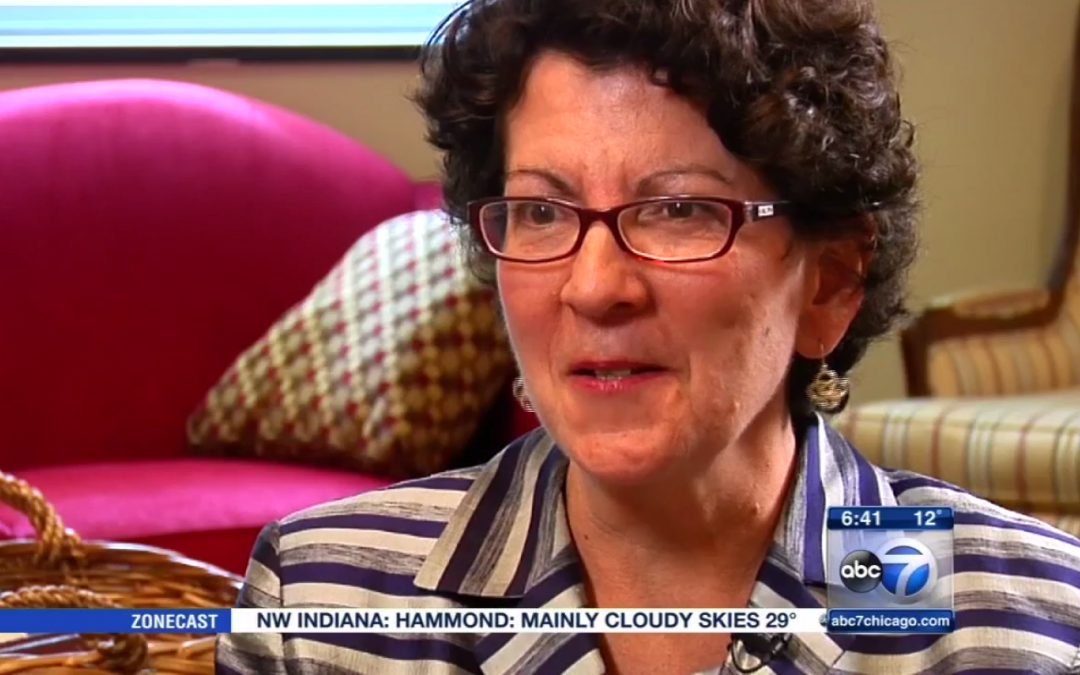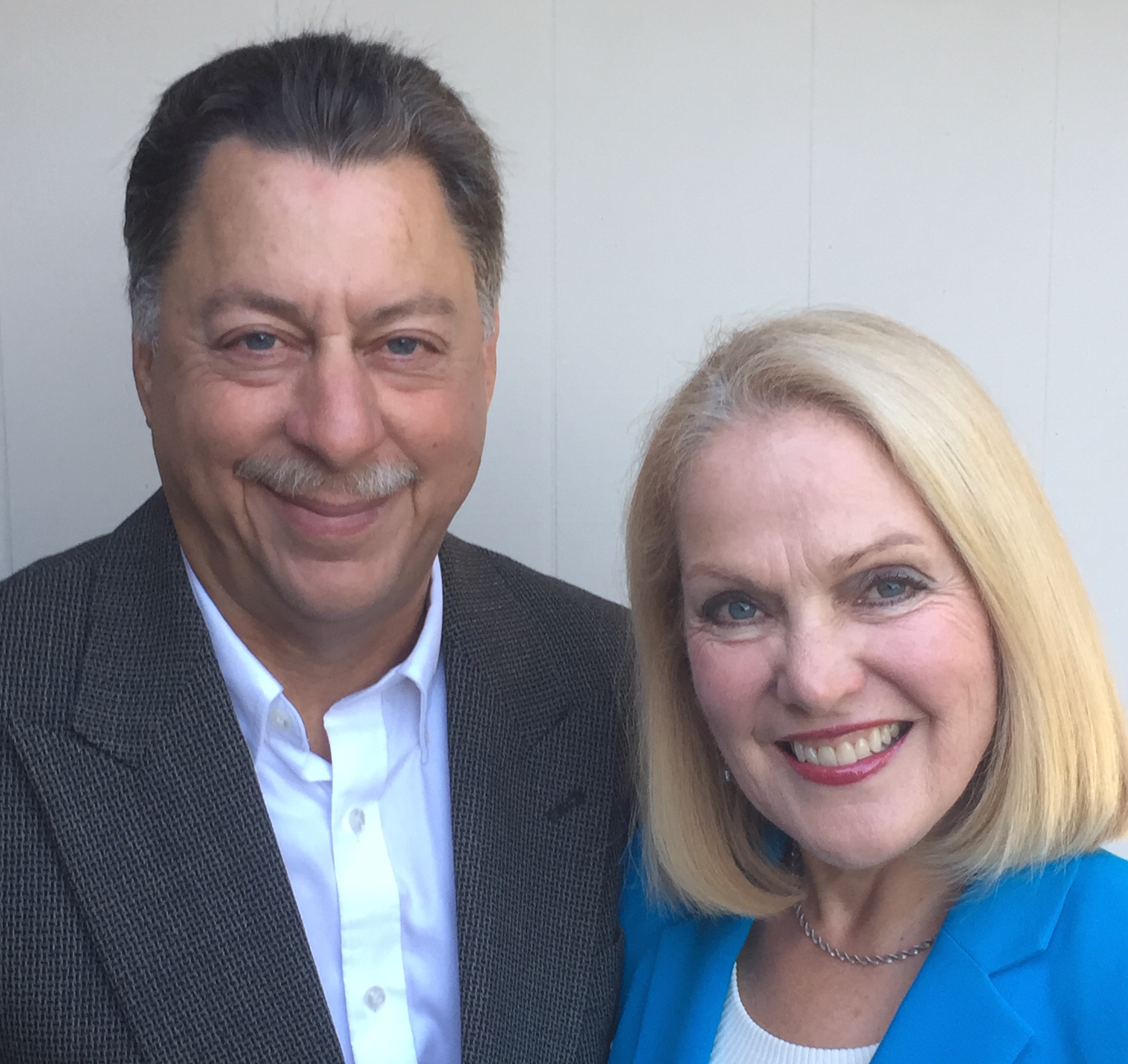
Apr 24, 2017 | aging, aging investor, diminished cognition, elder investor, elderly, finances for elders, financial advisors, financial capacity, financial elder abuse, financial judgement, handling money for aging parents, handling money for seniors, investor, scammers, senior citizen investor, senior investor, seniors finances
What To Watch For: Aging Clients and The Sweetheart Scam
If it didn’t happen so often, there would be no need to warn your single, widowed clients about it. But every day, someone gets taken in by a “special someone” who appears to have only your client’s interests at heart. The special someone is a scam artist who knows just how to get an unsuspecting lonely man or woman into the web of deception. And then they finagle money out of your client and run.
Some of these scammers are skillful repeat offenders. Some just see an opportunity and proceed to milk it for all it’s worth. Take the case of Tommy, whose wife was ill with cancer. He used to take his clothes to the local dry cleaner every week and he got friendly with the woman who ran the business. She loved to chat and gossip and he was lonely with his caregiving, cooped up with the daily chores he had to do for his ailing wife. Norma, the dry cleaner heard all about it.
Just after his wife passed, Tommy got a visit from Norma. She was so consoling and comforting. He felt like he had a real friend. She had heard about his wife’s illness for over a year and was ever so sympathetic. She also knew he had money. Within a month she had moved in with Tommy.
Over the next six months of giving Tommy her undivided attention, she managed to persuade him to give her “loans” of over $300K. She promised to stay with him forever. He loved the flattery and feeling special. No sooner had Norma gotten the last of what she could easily take, she promptly sold the dry cleaning business and disappeared. This is not such an unusual story.
Here’s what every financial professional needs to know about the Sweetheart Scam. Professional predators comb the obituaries for stories about the beloved widow or widower left behind. They look for those who have been with a deceased who was a business leader, a banker, a financially successful person. They choose the ones who may be likely targets, the survivors who have means. They scope out how to meet them and seize the opportunity to take advantage of loneliness. They will stop at nothing to get in the door. And sooner or later they always need “a temporary loan” or a little help to get out of an unfortunate jam. If it works, they up the ante. This can go on until they have bankrupted a widow or widower. It will at least drain available cash if no one is watching.
That’s where you come in, the financial professional with the ability to notice when unusual withdrawals are coming out of your client’s account. Once the scammer has gotten control over your client’s emotions, it may be too late to stop the scam. Your client is “in love” or at least addicted to the showered on attention. She won’t believe your warning then. The heads-up must come early, before an opportunist has a chance to cast a spell.
Here’s the takeaway: any recently widowed client in your book is a potential target. Do these things:
- Gently raise the subject of being careful of any stranger he/she meets soon after the loss of a spouse. Warn with empathy and facts.
- If your client claims he’s met a “special someone” do some digging. Google the person he names. Ask a few probing questions. See what your client may not be able to see. Share the data you glean with your client.
- Be sure you have contact information for a family member or trusted friend of your client whom you can call if you see something suspicious. Call them if you think your client is in danger, particularly if your client doesn’t want to hear your warning.
That protective posture you take on can save your client from disaster.
Financial elder abuse takes many forms besides the Sweetheart Scam. It is called “the crime of the century”, it is so prevalent. With the right know-how, you can stop it and keep your clients safer. Take a deeper dive into this subject in a book written just for you, Succeed With Senior Clients: A Financial Advisor’s Guide to Best Practices. Get a look at it here.
Carolyn Rosenblatt, RN, Elder Law Attorney & Dr. Mikol Davis, Gerontologist
AgingInvestor.com and AgingParents.com
|
|
Dr. Mikol Davis and Carolyn Rosenblatt, co-founders of AgingInvestor.com
Carolyn Rosenblatt, RN, Elder Law Attorney offers a wealth of experience with aging to help you create tools so you can skillfully manage your aging clients. You will understand your rights and theirs so you can stay safe and keep them safe too.
Dr. Mikol Davis, Psychologist, Gerontologist offers in depth of knowledge about diminished financial capacity in older adults to help you strategize best practices so you can protect your vulnerable aging clients.
They are the authors of "Succeed With Senior Clients: A Financial Advisors Guide To Best Practice," and "Hidden Truths About Retirement And Long Term Care," available at AgingInvestor.com offers accredited cutting edge on-line continuing education courses for financial professionals wanting to expand their expertise in best practices for their aging clients. To learn more about our courses click HERE
|

Apr 11, 2017 | aging, aging investor, declining health, diminished cognition, elder investor, elderly, finances for elders, financial advisors, financial capacity, financial elder abuse, financial judgement, handling money for aging parents, handling money for seniors, senior citizen investor, senior investor, seniors finances
In a recent issue of Investment News, a study of financial advisors looked at this question. 591 advisors were asked about their experiences with elder financial abuse. One of the surprising findings focused on those advisors who knew or suspected abuse but did not report it.
A significant percentage of those who did not report abuse gave as a reason that they did not know who to contact. What is most troubling about this finding is that not knowing who to contact is such a simple problem to solve. Historically your regulators have never required that you have the name of a trusted contact for your client in order to open a file for that person. Here at AgingInvestor.com and AgingParents.com, where elder financial abuse comes up often, we think it is extremely short-sighted to be without a trusted contact or two in every client’s file. Isn’t it obvious that you need someone to call if a client gets into danger, whether it’s elder abuse or not? No one gets out of here alive and a client can live for quite a long time, developing cognitive impairment along the way. That puts a person at much higher risk for financial abuse.
New FINRA rules will require that you make “reasonable efforts” to get a trusted contact from your clients. We assure you, reasonable efforts are a lot easier to make when your client is signing up than they are when your client is 92 and forgetful or suspicious of everyone’s motives.
From us, two professionals who have worked with countless elders and their families over the last 10 years, we have three tips for every financial professional handling a client’s finances:
- You can’t ensure that your client will be competent for financial decisions forever. Be realistic! People are living longer and they may develop dementia or other cognitive impairment. Get at least two trusted contacts in every file for every client age 65 or older. Why two or more? One trusted contact might end up being the very person who is abusing your client–a family member.
- Get smart about the basics of recognizing red flags of diminished capacity. We offer a simple free checklist to help you. Click on the green button here to get yours now. These signs are warnings that your client is more vulnerable to manipulation by others.
- Know how to report financial elder abuse. You don’t have to be certain that abuse has occurred. You do need to know who may be doing it, when and how, in general (e.g., pushing your client into large, unexplained withdrawals). A reasonable suspicion is enough. It’s ok if you’re wrong. And you can do it anonymously. Call Adult Protective Services in the county where your client lives if you think someone is ripping off your vulnerable client.
Some advisors are worried that they’ll get sued for reporting suspected financial abuse. This is incorrect. Your regulators want you to report it. If you do what is reasonable, you are not a target. However, if you know that your impaired client is being financially abused and you do absolutely nothing, liability for failure to act is certainly possible.
by Carolyn Rosenblatt, RN, Elder Law Attorney, & Dr. Mikol Davis, Gerontologist, co-founders of AgingInvestor.com
|
|
Dr. Mikol Davis and Carolyn Rosenblatt, co-founders of AgingInvestor.com
Carolyn Rosenblatt, RN, Elder Law Attorney offers a wealth of experience with aging to help you create tools so you can skillfully manage your aging clients. You will understand your rights and theirs so you can stay safe and keep them safe too.
Dr. Mikol Davis, Psychologist, Gerontologist offers in depth of knowledge about diminished financial capacity in older adults to help you strategize best practices so you can protect your vulnerable aging clients.
They are the authors of "Succeed With Senior Clients: A Financial Advisors Guide To Best Practice," and "Hidden Truths About Retirement And Long Term Care," available at AgingInvestor.com offers accredited cutting edge on-line continuing education courses for financial professionals wanting to expand their expertise in best practices for their aging clients. To learn more about our courses click HERE
|

Apr 10, 2017 | aging investor, elder investor, elderly, financial advisors, financial elder abuse, scammers, senior citizen investor, senior investor
Is financial abuse happening to your clients right now? Of course, it is. There is no escaping it. A recent study puts the amount stolen from elders every year in our country at over $36B. With a problem as big as this, no group of elders is immune. If you took a survey of your existing clients all age 65 or older and asked them how many have ever been taken advantage of financially, you would be sure to get some clients who would admit to this. If you look at your own experience and count up any instance you know of, whether it is in your family, your neighborhood or your book of business, you will likely find some financial abuse as well.
Why Is This Important for You?
The amounts stolen, fraudulently taken or just snatched from the unwary, are shocking. Remember that when your client loses assets, you lose fees. Portfolios that shrink because of fraud from predators take money from you, a manager, too.
That is the most basic reason this should be important to you as a financial professional. Doing the right thing to keep your clients safe is certainly a motivator as well. It shows that you do care about them. And beyond that, the regulators are increasingly aware that financial professionals are in a position to take action and, sometimes, to stop and prevent financial abuse. They will soon get past merely urging you to take action and to report abuse. They will ultimately make it mandatory.
And we think you can do more proactively than merely to understand how to report abuse after the fact. It would be great to catch more criminals but that is extremely difficult in many cases because they are very clever at evading law enforcement. And since family members are the most frequent abusers, we have an added problem in that many elders are reluctant to report abuse by their own to law enforcement. Mom just won’t call Adult Protective Services on her son, even when she knows he has stolen from her. We have seen this with our own eyes here at AgingInvestor.com.
There are many instances of scammers getting into relationships with aging folks by phone or on the internet. The “friendly” relationships become addictive. These thieves persuade the victim to withdraw funds from their accounts. This is where the advisor comes in. Unusual withdrawals are an important warning sign of elder abuse. And when the advisor notices this in a client’s account there are choices available about stopping abuse. They include contacting a trusted other the elder has identified and warning them of what is happening. There should be more than one trusted person identified for every client. And by all means, contact Adult Protective Services and report it if you suspect fraud.
If you are worried about privacy rules, don’t be. The regulators of your industry want you to report abuse. They want you to make every effort to keep aging clients financially safer. If you are not sure about privacy, create a special privacy document that specifically permits you to call a third party with your client’s ok. We can help you do so if you need guidance or a model document.
Financial abuse of your aging clients is likely, sooner or later. Take a deeper dive in our book “Succeed With Senior Clients: A Financial Advisor’s Guide To Best Practices”, written just for you, the financial advisor. See particularly the chapter “Financial Elder Abuse: How You Can Fight the Crime of the Century“. It’s available right now. Click HERE to get your copy today.
by Carolyn Rosenblatt, RN, Elder Law Attorney, & Dr. Mikol Davis, Gerontologist, co-founders of AgingInvestor.com
|
|
Dr. Mikol Davis and Carolyn Rosenblatt, co-founders of AgingInvestor.com
Carolyn Rosenblatt, RN, Elder Law Attorney offers a wealth of experience with aging to help you create tools so you can skillfully manage your aging clients. You will understand your rights and theirs so you can stay safe and keep them safe too.
Dr. Mikol Davis, Psychologist, Gerontologist offers in depth of knowledge about diminished financial capacity in older adults to help you strategize best practices so you can protect your vulnerable aging clients.
They are the authors of "Succeed With Senior Clients: A Financial Advisors Guide To Best Practice," and "Hidden Truths About Retirement And Long Term Care," available at AgingInvestor.com offers accredited cutting edge on-line continuing education courses for financial professionals wanting to expand their expertise in best practices for their aging clients. To learn more about our courses click HERE
|

Apr 7, 2017 | aging investor, finances for elders, financial advisors, retirement planning
With 10,000 Boomers turning 65 every day, no wonder there is so much talk about retirement. You may be planning busily to get your clients a stable income and keep the portfolio on track. But besides advice on how to “have a secure retirement” and “maintain your lifestyle” there’s some important information too few are taking about. That’s the retirement-era mistakes people make that are pretty much guaranteed to leave their families in a stressful mess no matter how well you manage their finances. Long experience here at AgingInvestor.com and AgingParents.com has revealed much about retired older clients. We hear about what your aging clients do and don’t do to make life stressful for their adult children. Here are what we call the Top Three of numerous errors aging clients make that you can at least remind them to avoid. Maybe you don’t get too far into their personal lives and relationships with their adult children, but we think you should go farther than is traditional for you to do. Their financial safety is at stake.
Mistake Number One: They never discuss finances with their spouses or adult kids. It’s private, they think.
The problem with this is that they’re not going to live forever. Family members need to know where the funds are, what you’re managing and what to do when the patriarch or matriarch becomes impaired or dies. Most people do suffer health declines as they age and millions will develop dementia. What then? You can’t take direction from a client who is too incapacitated to make a decision about finances. Encourage family meetings. Persuade your older clients of the necessity to communicate about finances so you can rely on a surrogate decision maker when or if your client loses mental capacity. You need to take leadership on this if the client doesn’t do it. The family needs to be prepared or suffer extreme stress when things go wrong for the aging parent.
Mistake Number Two: They believe they’ll never fall for a scam. They’re way too smart for that.
Very smart and capable folks get taken by scammers every day. In fact, some of your experienced and capable clients develop Alzheimer’s disease and can cover it up for a long time. But they lose financial decision-making capacity early in the disease process when other functions seem fine. Impaired people are more vulnerable than ever. You need to involve your client and family in awareness of the latest scams and fraud targeting seniors. Make it your business to give them information and links to good resources like the AARP Fraud Watch Network. They need to be aware of telephone scams, ID theft, and Internet thieves. When you protect their money, you protect your fees. If your client gets taken by a scam, chances are their family will have to help clean up the mess.
Mistake Number Three: They think they don’t need to plan for long-term care. They’ll never need it of course.
This mistake involves both you as a financial professional as well as retirement age clients in denial about ever needing expensive help for disabling conditions. For your part, your industry is inaccurately providing statistics about how much a retired couple, age 65 will need for “out of pocket medical expenses” and you guide clients accordingly. That is not fair to them because it is not truthful. Out of pocket medical expenses are not limited to the average cost of Medicare supplemental insurance and non-covered prescription costs. That’s what you may have relied on. Wrong. How about hearing aids, dental work, help at home from an agency worker, adult day centers and the many other aspects of long-term needs? Educate yourself first and then advise your clients. Long-term care could otherwise bankrupt them. And the family will bear the burden of caring for them then.
Perhaps your viewpoint is limited to the funds you manage and the income targets you and the client have decided upon. But there is far more to the retirement picture than that. We encourage you to take a deeper dive into retirement planning and gain a realistic view of how you can help clients avoid these big mistakes.
|
|
Dr. Mikol Davis and Carolyn Rosenblatt, co-founders of AgingInvestor.com
Carolyn Rosenblatt, RN, Elder Law Attorney offers a wealth of experience with aging to help you create tools so you can skillfully manage your aging clients. You will understand your rights and theirs so you can stay safe and keep them safe too.
Dr. Mikol Davis, Psychologist, Gerontologist offers in depth of knowledge about diminished financial capacity in older adults to help you strategize best practices so you can protect your vulnerable aging clients.
They are the authors of "Succeed With Senior Clients: A Financial Advisors Guide To Best Practice," and "Hidden Truths About Retirement And Long Term Care," available at AgingInvestor.com offers accredited cutting edge on-line continuing education courses for financial professionals wanting to expand their expertise in best practices for their aging clients. To learn more about our courses click HERE
|

Apr 3, 2017 | aging, aging investor, Alzheimer's disease, diminished cognition, elder investor, elderly, investor, senior investor
Have you ever found yourself in a situation with an older client who can’t seem to remember anything any more? You may have known the client over a number of years and feel responsible. But you are at a loss now. What are you supposed to do with this client? She’s pleasant and just loves you. But you are worried.
You are pretty sure your client is experiencing a slow, but steady cognitive decline. She has a daughter in another state but maybe she isn’t paying attention to what is going on with mom. She has a son she’s not close to, though he lives in the same area she does. You asked her once if she had someone to be her agent, her power of attorney. She hadn’t gotten around to that yet.
No one acts. No one insists that your client choose a relative or friend and sign the Durable Power of Attorney document. She says he doesn’t want to talk about it and you just back off and never mention it again. You suspect she may have Alzheimer’s disease, from your experience with your own family member.
Here is what can happen to your client.
She steadily loses judgment about what is a good thing to spend money on or invest in; therefore, bad decisions happen. We have observed savvy and intelligent clients who were once financially comfortable start falling for obvious scams. They buy worthless coins or stamps or fly-by-night property investments that take their money and disappear. Perhaps no one knows because the elder is in the secrecy habit. Time passes and the client’s cognitive ability declines even more. There is no stopping dementia caused by Alzheimer’s disease. The predators find an easy mark. As long as there is cash to spend or credit cards to run up, the elder keeps getting into deeper and deeper trouble. Unquestionably, financial decimation can result.
These situations are real. Here at AgingInvestor.com, we’re in the consulting business. We have talked to the families of elders who have probably been impaired for years, hearing them say they wished someone had done something sooner. No one but the financial professional knew what the client had nor where his money was going. The family thought the elder’s finances were fine. Now, with too much drained out by excessive giving, the family may well end up having to support their aging relative just at the time when extensive care is needed and the expense of it skyrockets.
How do you prevent the worst? By engaging in discussion with your client’s family or appointed other early in your relationship. If you have an ongoing connection with that trusted person in your client’s life, you stand a better chance of protecting her from dumb and destructive decisions if her mind starts to go, later on in life. Even if you can’t imagine how a perfectly alert, intelligent person could get dementia, it happens to millions of people as they live longer. 5.6 million of them are diagnosed with the disease right now in the U.S. alone. The risk rises with age.
If you have never had conversations with your older clients’ families, now is the time to start. You need to educate your client about the importance of having someone else named by her for you to reach out to if she gets sick or has an accident.
You need to develop the skill of conducting family meetings while each client is fully competent. Even if a client has a few memory lapses now it is not too late to have a meeting with family to figure out the path forward in case of trouble ahead. This is a “soft skill” every advisor needs. If you want to learn how to conduct a family meeting or get better at this, you can learn the techniques in a hour.
Putting these skills to work takes some practice. It is especially important to know what to do when a client’s family is difficult, or there is a history of conflict among them. That’s tricky and you will need some outside help. Get a one hour accredited crash course on conducting successful family meetings by clicking here.
By Carolyn Rosenblatt, RN, Elder Law Attorney, & Dr. Mikol Davis, Gerontologist co-founders of AgingInvestor.com

Mar 27, 2017 | aging, aging investor, diminished cognition, elder investor, elderly, financial advisors, investor, senior citizen investor, senior investor
How good are you at spotting the telltale signs of diminished capacity in an older client? Many older people have a bit of difficulty remembering. We often dismiss this when we see it, thinking it’s “just getting old”. It may be part of aging, as we do process things more slowly as we age and recall may take longer. But, there is a point when a problem recalling things should be a red flag for diminished capacity for you, the advisor. What are those red flags anyway? How do we label them? There are numerous signs of diminished capacity, more extensive than this article allows, but we’ll look at one category, which we call cognitive signs. Here’s a breakdown of what you should look for when your client has a lot of difficulty remembering things.
What to note and document about memory loss
This is one of the first things most advisors may notice in a client that causes concern. Perhaps she does not remember important meetings, decisions and discussions. Here are some examples of what you may see: Multiple telephone calls in one day that are repetitive and do not make sense. The client forgets that she has already talked with you and is calling about the same thing in another call to you. She repeats a question she already asked you and that you already answered. Client forgets why he has an appointment with you. This can be by telephone or in person. Perhaps the client himself asked for the meeting but then he forgets why. Or perhaps you wanted to discuss a proposed transaction with him and told him that, but when you call or he comes into your office, he has no idea why he is there. Trying to refresh his memory about it does not help. Complete forgetting of an event that just took place. You just spent a hour with your client telling her some important information about upcoming changes to her portfolio. She seemed to understand when you were talking but an hour later she asks you questions as if the meeting you just had never took place. She had totally forgotten about it. No shows. You have arranged meetings, appointments with others or events that require your client’s participation. He agrees on the pre-arranged date and time but then does not show up. When you call him, he has no recollection of the event, that others are involved nor that he had agreed to this.
If your client demonstrates any of these indicators you need to be paying close attention and make an effort to contact your client more often than you did before you noticed these problems. Any or all of them might be warnings of developing dementia. There could be other reasons for memory loss, but you won’t know unless you are keeping good records. The only way to determine if you have a serious problem here is to track these signs over time and document each instance you see. If the problem gets worse, it is time to take it to the next level. In your organization that might mean escalation, or having the documentation reviewed by a committee. Ideally, as we see it, the next step should include contacting the client’s appointed trusted third party who would step in when the client became impaired. To learn more about diminished capacity and just what you should do about it, click here. An hour of accredited learning on the course Best Practices for Clients With Diminished Capacity will make you a lot wiser in your approach.
By Carolyn Rosenblatt, RN, Elder Law Attorney, & Dr. Mikol Davis, Gerontologist co-founder of AgingInvestor.com

Mar 24, 2017 | aging investor, diminished cognition, elder investor
How Much Retirement Income Will Aging Clients Need? More Than You Think!
Financial professionals do their best to guesstimate how much income a person will need to maintain a client’s lifestyle in retirement. Figures vary, with averages being $50,000 a year and up. They are based on various median ranges of things like out of pocket medical expenses, cost of living and the like. But you can’t predict how long your aging client will live. All your calculations can be for naught if you totally miss how much it really costs to live to be in one’s 90s.
Let’s look at a real person who is in some ways atypical in that she is in pretty good health at 94 and can still get around on her own. A lot of those who are 90+ can’t. They need more help and help costs more than most retirement calculators accurately predict. Could you do the math on this one, in advance?
“Evelyn” was widowed 8 years ago. She lived in a big house in a lovely gated seniors’ community with all the amenities: golf courses, pools, recreation centers, clubhouses, restaurants and many activities. But after she lost her husband three pivotal things happened. First, she became more isolated. Some of her friends moved away to assisted living or to be closer to family. Next, she got more and more lonely. And third, her own health began to decline in that it was harder to walk and use her hands due to arthritis. She decided to move.
She sold her free and clear house and invested the cash. One would think that the proceeds of over $350,000 would be a nice cushion to pay for her move to a smaller seniors’ apartment where help was available, even though she was still able to do her own personal care unassisted. Moving from a 2800 square foot home to an 800 square foot apartment should be a savings, right? In the seniors’ complex, meals, linen changes, cleaning and transportation to appointments are provided, along with many social activities on site and in the community. The transportation service allowed her to give up driving, which it was time to do at her age. It also eliminated the struggle of having to shop, do housekeeping and cook all the time. She had a community now. But at what cost?
In the four years since she sold her house, she depleted all of the sales proceeds from the home. Why? She has expenses she didn’t really plan for. She was not able to predict these expenses accurately. Her out of pocket medical costs were for things not covered by either Medicare or supplemental health insurance. In a single year, that figure was over $2000. The medications she takes for her blood pressure, heart and other chronic health conditions are keeping her going but the part not covered by insurance cost her another $5000. A premium for her supplemental insurance (also called Medigap coverage) is almost $3000 a year.
The lowest level of “care” in the seniors’ apartment means that no help is needed with bathing, walking, dressing, eating, bathroom, and moving from bed to chair and back. The rent and services in a high-value real estate area where her apartment is located started at $5000 a month. Last year it cost $66,000 for the year and it increases every year. This year’s rent is $300 a month more than it was in 2016. And that is without assisted living, which would cost at least another thousand dollars each month.
Evelyn had a hospitalization last year due to her blood pressure. After she came home, she needed a helper, whom she hired independently for a few weeks. That cost was also not covered by any insurance. In the years since her husband passed, Evelyn also had to get a lot of dental work done. In the space of a few years, she spent over $50,000 on her teeth, with implants and several surgeries to get it right. And it was harder to hear. She spent $5000 on hearing aids with the ongoing expense of battery replacements. Dental and hearing aids are also not covered by Medicare or supplemental insurance.
What will it cost Evelyn to live an enjoyable but not extravagant life in a modest seniors’ apartment next year, assuming she is still able to do her personal care independently? The tab will be at least $97,000 without dental and hearing aid expenses. Do you and your clients plan for that?
The long-term health conditions Evelyn has will likely push up the out of pocket expenses she faces as she reaches 95. She says she wants to live to be 100. She is a fortunate person in that her investment income is about the same as her cost of living. But not every client you have is so blessed.
Sure some of Evelyn’s costs of living are cheaper where real estate costs less. Medical costs may be somewhat less too in other parts of the country and you plan according to where your client lives. But the reality is that there are likely to be huge out of pocket medical cost with aging. When you do retirement planning it’s not only about the calculator. It’s about the very real, somewhat unpredictable effects of living a long time and the toll it takes financially on your aging investors.
Here are the important takeaways:
- Widowhood changes the picture. Discuss with your clients what they would want if widowed. Where would they live? What would they need to be comfortable and safe?
- Expect everything about living to age 90 and above to cost more than anyone says it will.3. Be sure your older clients understand that Medicare does not cover dental, hearing aids, much medical equipment, home-helpers, transportation and certain medications. They must be ready to cover these expected costs that are part of aging for almost everyone.
- The cost of living in retirement does not go down, as people get older. The supports they are likely to need cost more over time, not less.
Learn more about the psychology of aging clients, how to communicate better with them and how to best deal with typical problems aging clients present in Succeed With Senior Clients: A Financial Advisor’s Guide to Best Practices. Click here to get your digital or hard copy today!
Carolyn Rosenblatt, R.N., Elder Law Attorney, & Dr. Mikol Davis, Gerontologist co-founder of AgingInvestor.com

Mar 1, 2017 | aging investor, elder investor
We’ve all had them. Those clients who seem to be more and more forgetful. They’re with it some of the time and other times, not so much. They call you multiple times asking the same questions. They repeat their stories to you. It gets scary is when they start wanting to do dumb things with their money.
Unfortunately most firms do not have clear and specific protocols for you to follow when a client begins to show those telltale signs that he’s slipping mentally. Or that she is flat out vulnerable to manipulation by some unscrupulous person. You see it, but what can you say? You just carry on hoping it will get better or that family will take care of it. But that doesn’t happen. Then what?
At AgingInvestor.com we think it is far too dangerous for you to simply ignore the problem, or expect someone else to take care of it for you. If a scammer takes Dad, you will know when those strange and unexplained large withdrawals start coming out of his account. Family can reasonably expect that you will do something to keep your client, their father safe financially. That’s fair enough, but how do you start?
First, you need to document every instance of anything that you observe that shows you that your client’s ability to make financial decisions is becoming impaired. You don’t need to be an expert to see what’s obvious. Multiple phone calls in one day with the same question is an example. When you explain something slowly and clearly enough for a high school kid to understand and your formerly sharp client doesn’t get it at all, that’s another example: easily confused. There are numerous signs.
When you have collected the signs over a period of say, six months or more, and you have carefully recorded them somewhere, it’s time to bring your client in for a face-to-face conversation. If you are at a distance, this may have to be by phone but it has to happen.
Start with your concerns. For instance, you can say “Jack, I’m getting concerned about some things I’ve noticed with you over the last few months. I’ve heard you ask the same thing multiple times in the same day. I have noticed that you are forgetting some important things I’ve explained to you about your portfolio.” Jack may push back and probably will. You follow up by calmly showing him or describing to him the dates and your documentations of instances. “See here’s what I mean. This is worrisome to me Jack. My job is to be sure your money is safe and that no one tries to rip you off. When you forget a lot, predators are waiting to target you”.
Then you bring the conversation to the ask. “Whom do you trust that we could involve in being a backup safety person with you, or just joining in on the decisions about your investments here that might be a reassurance for me that you are ok?”
If you were smart before the diminished capacity issue came up long ago, you would have had Jack identify two trusted others you could contact in this situation. You would have had Jack give you permission to disclose protected information with the trusted others and thus dispose of the barrier that stops so many: the privacy issue. All this would be in your client file.
People respond to this approach in various ways. If you know your client, you will know some words that may work best with him or her. The point here is that you need to have this conversation, which may initiate a series of steps to keep that vulnerable client with diminished capacity as safe from predators or his own foolish decisions as you can.
Here are some takeaways from AgingInvestor.com, where you can learn more on this subject.
- Face the issue that you have to address this, awkward or not. Diminished capacity must not be ignored.
- Document each and every sign of diminished capacity as you communicate with your client. Here’s a checklist to help you.
- Open the conversation by making it your concern. You are worried about the client. You want to keep him/ her safe. You want to do your professional job.
- Have at the ready your trusted 3d party contacts for your client. Get your client’s permission to involve the trusted others at the earliest opportunity.
Does this expand your role as a financial professional? You bet. But there is no escaping aging clients and the issues longevity brings. Be ready for them.
Carolyn Rosenblatt, R.N., Elder Law Attorney, & Dr. Mikol Davis, Gerontologist co-founder of AgingInvestor.com

Feb 3, 2017 | aging investor, declining health, elder investor, financial advisors
Every advisor understands that you are theoretically required to know your client. But does one or two contacts a year after you do retirement planning suffice? When it comes to aging clients we at AgingInvestor.com think it takes a lot more than that. Here’s a real case that illustrates the problem with an advisor not really meeting this obligation.
Nigel is 80 and his wife, Berta is 84. Each had a large estate of separate property when they got married. Nigel owned a home in an expensive county and Berta had her own inheritance. They had had the same financial firm in a different state from where they now live for decades.
We got involved at the point of a desperate call from Nigel. His wife was being discharged from the rehab facility, he was told and he wasn’t sure what to do. He had the means to pay for private care and that was what he wanted. I consulted with him at some length and asked about the medical records. He obtained them at my request. The news was not good. His wife was terminally ill and plans for how to manage her had not been discussed with anyone: not the doctors, not the rehab folks, no one.
A person’s choices about care are driven largely by how much they have in assets that can be spent on care. I asked. He contacted his financial advisor and we all spoke together. There was plenty to cover the need, but at that point I learned that Nigel and Berta had never done any estate planning. No will, no trust, no beneficiary designation on any account naming the other as a recipient when one passed.
Where was the financial advisor in all this? Ignorant. Not involved in encouraging her clients to do what would benefit both of them. She apparently did not keep in touch with them, despite that Berta had been ill for over a year. She did not know that Berta was gravely ill and going into hospice care (comfort measures only for the terminally ill). She did not know that they were about to incur a daily cost for a private room in a well appointed nursing facility at a cost of $430 a day.
Scrambling to find an estate-planning attorney and get advice, we did accomplish what the advisor could have urged her clients to do long before this crisis. Nigel does not use a computer. The advisor emailed the power of attorney and beneficiary designation form to me and I ensured that it was signed and sent back. Now Nigel is on his wife’s account, and can access her funds, should she lose consciousness. Why, I asked did this long time advisor not do this much earlier in the planning process? At least Nigel, who needs a trust for his estate, will now have one done, no thanks to any advice from his long time advisor.
Adding value for your clients takes more than the latest algorithm and getting the best returns. It takes knowing them, their life situations, the risks posed by aging and the skill to look at the anticipated expenses of care as clients near the end of the road. The nursing home cost for what Berta needs now is not covered by Medicare.
The simplest takeaway from this: contact your clients every six months if they are at retirement age. Keep in communication and know them, not just their assets. It’s the least you can do.
Learn about the actual cost of care and how to help your clients with long term care planning in Succeed With Senior Clients: A Financial Advisor’s Guide to Best Practices. Click here to download your copy today.
Carolyn Rosenblatt, R.N., Elder Law Attorney & Dr. Mikol Davis
co-founders of AgingInvestor.com and AgingParents.com

Jan 27, 2017 | aging, aging investor, declining health, diminished cognition, elder investor, elderly, finances for elders, financial advisors, financial capacity, financial elder abuse, financial judgement, handling money for aging parents, handling money for seniors, long term care, long term care insurance, medicare, senior investor, seniors finances
Do you have older clients who seem to be doing really well physically? Some of our aging folks are remarkably sharp and we can all be lulled into a false sense of security with them. This is a heads up warning about a real situation that you can perhaps help clients avoid by a simple step. Bear in mind that your older clients may be alert but still have trouble keeping track of the occasional bill. That can lead to a true financial disaster. Here’s what happened to one person we met at AgingInvestor.com who could well be your client.
Ruth is 88, still quite independent, taking care of herself at home. She does her own shopping and cooking, drives and pays her own bills. Great at her age, right? But when it comes to memory, that’s a problem from time to time. And forgetfulness plus an unforeseen glitch caused a financial nightmare for her. Here is what happened.
Ruth has Medicare and supplemental insurance. That extra 20% the supplement pays doesn’t sound like a lot, unless you have a crisis and have to go to the hospital.
Ruth paid her bills by check each month. But sometimes her mail carrier made mistakes and put envelopes in the wrong box. That’s just what happened with Ruth’s supplemental insurance bill. She didn’t pay the bill one month because she never got it. That was the glitch. Unfortunately that is exactly the month that she had a major health crisis and had to be hospitalized. She never knew that her supplemental insurer had missed a premium payment from her until they denied payment to the hospital for the amount due after Medicare paid the hospital in full. She was very upset and called them but they brushed her off when she told them what happened. She had never paid late nor had she ever missed a payment. They didn’t care. Her bill for the amount Medicare didn’t cover was over $80,000. They flatly refused to pay it.
She tried to call again and again but got nowhere. She sent a letter but received no response. Ruth’s case is not the first time we’ve seen a situation when an older person fails to pay an insurance premium notice either because of illness, dementia, not receiving the bill or other valid reason. Some companies will allow reinstatement of coverage when the amount owed is paid in full. But Ruth’s former insurer has been horrible; clearly to get out of the large bill they would have had to pay. They’re probably happy about it but of course Ruth is distraught.
Now imagine that Ruth is your client. Most write checks by hand for paying bills, as they have done all their adult lives. Lots of people in their 80s don’t use a computer or are only able to do so with many limitations. They don’t use auto debit for paying bills automatically.
There is one thing you, the advisor, can do to prevent a disaster like Ruth’s. Work with your aging client and their family to get them set up so that payments for ongoing, recurring expenses are auto debited from a bank account. This applies most especially to insurance premiums. As long as you are overseeing the finances for these older clients, think about this simple preventive strategy you can urge them to use to protect their financial safety. Sometimes no one thinks of it. Sometimes the family is also lulled into a false sense of security because the elder is so independent in other ways. Bill paying is a vulnerability and you can think of measures to make it less so.
That medical bill coming to a client because of a simple error, forgetfulness, or glitch can be a source of extreme stress. Take the time now to talk with your client about the prospect of auto pay for all of their recurring bills. Even if they are unsure of how to set it up, a family member, a friend or money manager can offer to do this for them. It’s a small, basic measure but hugely helpful to prevent financial loss

Jan 12, 2017 | aging, aging investor, Alzheimer's disease, diminished cognition, elder investor, elderly, finances for elders, financial advisors, financial capacity, financial elder abuse, financial judgement, handling money for seniors, investor, scammers, senior citizen investor, senior investor, seniors finances, wealth transfer
A Lurking Danger You Need To Warn Your Clients About
There is nothing wrong with putting on a dinner or lunch for prospects while you give them a pitch about a product you like. But unfortunately, a free meal brings people out, especially older folks and they become sales targets for unscrupulous people. FINRA, in seeing how these seminars are too often a vehicle for fraud and exaggeration preying on unsuspecting elders, has issued a warning to seniors. You can be the messenger to provide a heads-up for your own clients about this.
Too many unethical people are using the setting of a free lunch to sell inappropriate investments. The annuity scams are notorious for this. And the scammers love impaired elders who are so easy to fool.
As people age, about a third of them will develop Alzheimer’s Disease. Most of the victims of this insidious disease are women. When the earliest signs of the disease emerge, research tells us that impairment of financial judgment is already underway. The predators have no trouble talking a senior who lacks the ability to see a scam coming into buying whatever they’re selling. It happens every day, not just in the free lunch seminar.
FINRA’s alert for investors about “free lunch” investment seminars is specific. Your older clients might not get that alert unless it comes through you. Here’s the gist of what FINRA wants seniors to know.
The FINRA Investor Education Foundation researched people over 40 to find out how many have been solicited with offers for a free meal seminar. 64 percent of respondents had been solicited, which means that the odds are, your clients will be among them. What the research also showed was that half of the sales materials contained claims that were apparently exaggerated, misleading or otherwise unwarranted. 13 percent of these seminars appeared to involve fraud, such as unfounded projections of returns and sales of nonexistent products
Slick and unscrupulous “advisors” and sellers have been at this for years, pitching unsuitable products. They’ve stepped up their game as the population ages. They want every target they can get. An easy way to warn your clients is to give them a one-sheet Client Update we have created for you. Get yours here or by clicking below and send it out to everyone in your book of business. Some of them are older clients and some have aging parents or grandparents who need to know about this.
You’ll look good by showing that you care about what happens to your clients and they’ll appreciate the message.
You can improve your expertise with your older clients in a book written especially for you, Succeed With Senior Clients, A Financial Advisor’s Guide to Best Practices. Get your copy by clicking here.
Carolyn Rosenblatt, RN, Elder Law Attorney, AgingInvestor.com and AgingParents.com

Jan 5, 2017 | aging, aging investor, diminished cognition, elder investor, finances for elders, power of attorney, senior investor, seniors finances
Have you ever had a stubborn older client who told you he’d never talk about his assets with anyone but you? He doesn’t think he’ll ever need help in his life and he wants to be in charge. When you suggest a family meeting to let someone else know what to do in case he ever became ill and unable to communicate, he shuts you down. This is all too common.
A consistent obstacle to communication we see in our work is the resistance of the older person to discuss finances with anyone, including their adult children or other heirs. The Great Depression led to secrecy about finances for many, as fortunes were lost sometimes overnight and once proud people became impoverished. Talking openly about money was just not done for those who grew up in this time of widespread devastating and sometimes life-ending financial losses. To this segment of our population, openly discussing money was considered rude, unseemly. Some of these Depression-era survivors remain reluctant to tell anyone in their families where their accounts are, what their assets are and what they want done with their assets in the event of incapacity.
Presumably when you have a long-term relationship with your client, she trusts you and trusts your judgment. That gives you leverage. You may know more about her finances than her family, her friends or anyone in her life. You are charged with the task of long range planning and you look ahead. In doing so, it is up to you to urge your client, gently, repeatedly and with ongoing persistence that she find someone she can trust to appoint to protect her if she has an accident, falls ill, or can’t speak for herself.
Sometimes persistence pays. The power of your relationship is a tool to persuade your client to come around. This is not a situation to ignore just because your client resists. The older she is, the more there is at risk. Anything can happen to her health at any time.
If your client resists, we encourage you to repeat your requesting a week or a month. Do it in a tactful way and paint a verbal picture for her of what would happen if she were no longer able to speak for herself. Tell her how frustrating it would be to have to refer her account to your legal department for a decision about getting a court involved if she could no longer communicate. Tell her how upset that would make you feel. Express your own concerns and make it your problem.
We hope that every single person in your book of business has an appointed trusted other for you to contact. You may well need that and it can be up to you to urge your client to take care of that most important piece of legal business, the Durable Power of Attorney, if she has not done this. Diminished capacity can sneak up on your client and you’ll need help.
It’s a new role you have with the oldest clients. They are living longer than they thought they would and with longevity come the risks of impairment in all ways.
If you’d like to take a little deeper dive into managing clients with diminished capacity, you can get a lot of expertise in a one hour online course by clicking here.
By Carolyn Rosenblatt, RN, Elder Law Attorney
AgingParents.com and AgingInvestor.com

Oct 28, 2016 | aging, aging investor, elder investor, elderly, finances for elders, financial advisors, handling money for seniors, investor, senior investor, seniors finances
Proving Value to Retired Clients: Creating a Financial Checklist
Many of us in this society have a very negative image about aging in general. We don’t want to be “old”. It is fueled by advertising on TV, movies, print media and other outlets with a consistent message: aging is bad, being younger and turning back the clock is good. We are a work ethic driven culture. When we are older and no longer “productive” we are generally seen as less valuable.
Then there is the fear and denial about dying and death. Our culture has been called the only one in the world that thinks of death as something optional. Note how we talk about it to family–“in case anything ever happens to me… Besides it being a fantasy that maybe something” won’t happen to us, it keeps us from planning, from preparing our loved ones and from being responsible about our older years, possible declining health and the burden ignoring these things can put on our families. Reaching retirement age is a time to do planning about more than money.
Financial advisors are in the planning business. You look ahead, analyze, budget and calculate. But your clients may not be on the same page in your view of the future. They are busy being in denial that they may ever get ill and die. You can help them. In doing so, it may also make your job of talking about such issues as long term care, budgeting and spending easier.
Most people do not want to burden their loved ones. Most of them do not want to trouble adult children unnecessarily as they age. That is your best selling point for bringing up the personal matters. These include how every senior and every retiree needs to plan for things in their own lives that go beyond how much money they’ve saved and how it will be spent having a great retirement.
Here at AgingInvestor.com we see the messes people leave behind when they nurture the Great American Fantasy that losing independence won’t happen to them and that they will live happily to age 100 and die peacefully in their sleep. Family members can spend years cleaning up the disaster their older loved ones leave because of failure to plan and take care of business. It is truly not fair to anyone. It leads to anger, resentment, family conflicts and sometimes to loss of wealth through ignorance. We’ve heard it and seen it countless times. We put a checklist together to help people avoid these disasters created by the fantasy.
What Can You Do About It?
You can give your clients this checklist next time you sit with them and review the portfolio. You can gently urge them to do what the list says is needed. We’ve broken down the essentials into 10 points, a “to do” list if you will. You can encourage them to take care of the items on the list, if they haven’t already. In general, the to do list includes updating the estate plan, having critical documents in the right hands, providing necessary financial, computer and account information to trusted family and having a family meeting to educate one’s heirs about the older person’s affairs. This is how your client gets a family ready. This is how they avoid unduly burdening anyone. This is how they free their loved ones from distress and unnecessary work when they have to take action as an aging parent declines and passes away.
Some of your clients will brush off your suggestion. They love that Great American Fantasy and aren’t about to give it up. Others will thank you as they have thanked us and will go forward. Their families will be forever grateful. You’ll look like the caring, smart and responsible planner that you are.
Get your free Ebook and the Financial & Personal Checklist For Smart Retirees, click HERE.
By Carolyn Rosenblatt, RN, Elder Law Attorney, AgingInvestor.com

Oct 21, 2016 | aging, aging investor, diminished cognition, elder investor, finances for elders, financial advisors, financial capacity, financial elder abuse, finra, handling money for aging parents, handling money for seniors, NASAA, nasdaq, SEC, senior citizen investor, senior investor, seniors finances

Oct 13, 2016 | aging, aging investor, Alzheimer's disease, elder investor, financial elder abuse, investor, scammers, senior citizen investor, senior investor
Lots of sellers of products are trolling for new clients, new prospects and older investors with substantial assets. They use a proven technique that could trap your client. You can educate your clients early and often about the technique, which is the “free meal educational seminar”. These seminars are not, by themselves, a bad thing. Perhaps you’ve even put one on yourself, or considered doing so. But too many unethical people are using these to sell inappropriate investments to older people. The annuity scams are notorious for this
checker informative hints.
(more…)

Oct 7, 2016 | aging, aging investor, diminished cognition, elder investor, elderly, finances for elders, financial advisors, financial elder abuse, handling money for seniors, investor, NASAA, senior investor, seniors finances
Two Things Professionals Can Do About Elder Financial Abuse
It’s vicious and pervasive. It’s growing. It has been called “the crime of the century”. Elder financial abuse, according to a study by True Link Financial, costs seniors in the U.S. over $36B a year. But can financial professionals do anything about it? We say definitely yes.
Most of us have encountered this kind of opportunistic crime at some point, among family, neighbors or friends. When we at AgingInvestor.com present to groups of professionals we ask how many have had witnessed this kind of abuse with anyone known to them. Almost every hand goes up. The question is, what can you do about it?
Many professionals are either hesitant to get involved because they think privacy concerns should stop them, or they want to take action but are unsure about what to do. Let’s clear away those concerns now.
First, remember that when your client gets ripped off and cash is drained out of the account you manage, you are losing fees for those AUM. If that isn’t incentive enough to be involved note that NASAA has already developed model rules which will require that you report abuse to authorities. Those are likely to become mandates soon enough.
Let’s look at two basic steps any professional can take now to improve your response and protect your clients from financial abuse.
Get third party contacts on file
One, you need to get from your retirement-age clients the names of several trusted others whom you can call in the event that you see red flags that abuse could be going on. Remember that family members are the most frequent abusers of aging folks. Perhaps that favorite one, Sonny Boy is taking advantage of a vulnerable parent or other relative. Be sure one of the contacts you get from your clients is not a family member, but a trusted friend, colleague or professional. Age makes all of us more vulnerable to financial manipulation for many reasons. Next time you review an older client’s portfolio, get this necessary information about whom to call if you get concerned and keep it on record.
Get permission from your client to call the third parties under certain circumstances
Two, you need not consider privacy rules a barrier if you have your client’s permission to contact the designated third parties he has identified. A legally sufficient privacy document will help you. This is an area where both legal and compliance departments should assist you to get the right paperwork in order. At AgingInvestor.com, we developed just such a model document, a product we offer to overcome the confidentiality barrier to taking action. It’s part of a senior-specific policy. And you can do it in-house on your own too with legal input. Get one done for every aging client. It resolves the question of giving private information to the designated third party. You will have the ok to act when you need to.
Caution: we do not recommend that you use an informal letter to for your client to give up the right to privacy. Consider that in our society, we use things like a durable power of attorney to give up the right to solely manage one’s finances, and an advance healthcare directive to give up the right to make end of life or care decisions alone. We don’t use mere letters for these things. You need papers that are standardized, formal and that will stand up to scrutiny should anyone question them.
Surely you do not want predators to take advantage of your clients, particularly when they suffer from any cognitive decline. That increases their vulnerability. And the integrity of their portfolios is enhanced by your own vigilance over them as they get older.
Take a deeper dive into the elder abuse subject in our book Succeed With Senior Clients: A Financial Advisor’s Guide to Best Practices. We offer you a handy checklist with the 7 warning signs of financial elder abuse, more practical tips and some true stories of how a financial professional did or didn’t get involved at the right time.
The most forward thinking financial advisors will be early adopters of these means to keep clients financially safer. Be one of those leaders!
by Carolyn Rosenblatt, RN, Elder law attorney, AgingInvestor.com

Sep 28, 2016 | aging, aging investor, Alzheimer's disease, diminished cognition, elder investor, elderly, finances for elders, financial advisors, financial capacity, handling money for aging parents, handling money for seniors, senior citizen investor, senior investor, seniors finances
The Inner Workings of Clients’ Financial Decision-Making Ability
Whether you have a lot of older clients or just an occasional one, it’s critical for every financial professional to understand whether a client can safely make decisions about money. It might seem straightforward when your client is able to carry on a conversation, talk about current events or make a joke. You assume she’s fine, but it’s not that simple. Conversational ability can mask a true disabling brain condition we call dementia. It does not reveal itself easily, particularly at the earliest stage.
The insidious onset of Alzheimer’s disease or other dementia can sneak up on a client and affect the ability to exercise judgment about finances. To help your clients, you need to know the red flags of diminished capacity, a basic skill anyone can learn. You can get a free checklist to help your do that at AgingInvestor.com. But beyond that, it is critical to understand just how complex our capacity to make safe financial decisions is.
Research shows us that with the most common form of dementia, Alzheimer’s disease, financial capacity is moderately impaired even at the very beginning of the disease process. By the time a client gets to the middle stage when symptoms are more obvious she is already severely impaired in her financial capacity. No one should be making independent decisions about finances with severe impairment of this capacity.
This financial ability is defined as “the capacity to manage money and financial assets in ways that meet a person’s needs and which are consistent with his/her values and self interest.” It is broken down into nine areas or “domains”. These include cash management, basic money skills, bill payment, and financial conceptual knowledge. The ones an advisor is most likely to see and assess are knowledge of personal assets and estate and investment decision-making.
You may not discuss with your client whether he understands what a money market is but you will be ethically obligated to discuss the pros and cons of various suggested investments and the effect they will have on your client’s overall financial picture. This is the area where older clients with impairment will not be able to process the information you are offering them. When they are affected by brain disease like Alzheimer’s (over 5.5 million people are diagnosed now, with that number expected to rise dramatically) they will not be able to “get it”. You are on dangerous ground if you proceed to recommend or sell any financial product in the face of serious doubt about a client’s financial capacity.
Granted, many financial products are complicated and the average person may not grasp all the nuances. But when you believe your client is probably impaired and cannot understand any carefully worded explanation you give, you are exposing yourself to liability by going ahead with transactions for that person.
How could this get you in trouble? All of the regulatory agencies want you to keep your older clients safer and they have issued guidelines for how to do that. All of them want you to know the red flags of diminished capacity. Financial capacity is the most complex of the kinds of capacity a person can have. If you do not involve a third party to assist the client with financial decisions, you risk a bad outcome and regulatory prosecution. You also risk the heirs coming after you in civil lawsuits, charging that you should have known what everyone else knew at the time, that their mother/father was impaired and you should never have sold that, done that or caused the bad outcome.
This is a very real problem among financial professionals– the failure to recognize and act on the warning signs of diminished capacity. If you are managing a retirement account for that client, beware even more. Acting in the client’s best interest means that you need to understand when the client’s financial decision-making capacity is going downhill.
This article just touches on the complexity of financial capacity. Everyone deserves to have a deeper understanding so you can avoid prosecution or questionable accusations about your recommendations or the client’s investments. When the investment an impaired client went for at your suggestion loses money, you can bet someone will blame you if they can. Don’t set yourself up. Don’t make it easy for them to attack you.
The way around this risk of working with an impaired client is to have your client’s permission to involve a trusted third party as a surrogate decision maker for all financial transactions. How you get that permission is the subject of another article and it needs discussion. In the meantime, take a deeper dive into the nuts and bolts of financial capacity in Succeed With Senior Clients: A Financial Advisor’s Guide to Best Practices, available here. Chapter Two explains all you need to understand about the components of financial capacity. And the privacy question and how to get that trusted other involved is answered in the book too.
By Carolyn Rosenblatt, RN, Attorney, AgingInvestor.com

Sep 22, 2016 | aging investor, elder investor, finances for elders, financial advisors, handling money for aging parents, handling money for seniors, investor, senior citizen investor, senior investor, seniors finances
Attention Financial Advisors:Do You Have A Colleague With Cognitive Impairment?
The financial services industry frequently shows concern about the problems of longevity and aging clients. Cognitive impairment, diminished capacity and dementia get air time with various solutions, mostly vague, offered by industry insiders. But one problem is not being addressed: the professional herself with cognitive impairment.
It’s time to look at this as a real risk, not some unlikely possibility that can easily be taken care of by a succession plan for the professional’s business. Dementia is a complicated disease. It sneaks up on people, with the early warning signs of short-term memory loss, followed by increasing difficulty with reasoning and judgment. If we had not witnessed this at AgingInvestor.com with impaired professionals ourselves, we might be fooled into thinking that professionals had figured out how to address it. Simply put, they haven’t.
Let’s look at the notion that all you need is a succession plan for your business and there will be no problem if you develop cognitive impairment yourself, or someone in your organization does. What’s the flaw in this? It is that many people with early Alzheimer’s or other dementia do not recognize that they are impaired. This phenomenon is called anosagnosia, an inability or refusal to recognize a defect or disorder that is clinically evident. Ironically, the part of the brain that reasons and analyzes is so affected by the disease that it is not able to process the information about one’s own impairment.
How this plays out is that as a person ages and becomes more at risk for dementia, some will surely fall victim to brain disease. The odds are at least one in three by the time we reach age 85. The risk doubles about every 5 years starting at age 65. So some financial professionals are going to develop dementia and some will not know that they have any impairment. So they keep working. Others around them are afraid to raise the topic when alarming signs first appear. No protocol exists to ease a person out of the role to which they are accustomed, particularly when they tell you they’re feeling just fine, thank you.
Busting The Myths
Myths exist. The first is that a financial professional, whether managing money for clients, selling products or addressing their taxes and accounting, will know that he or she needs to retire when the time comes. This is not what occurs. Many folks who have a good book of business and enjoy what they do will not look to retire by a certain age. They keep working, and consequently when they are impaired they put every client at risk.
Another myth is that somehow the doctor, the family or someone else will advise you when you have dementia and you will of course agree with their assessment. Denial is a frequent component of cognitive impairment, rooted deeply in fear of losing control over one’s life. Even those who start to see and fear their own early difficulties with memory will cover it up, avoid facing it and carry on as if everything is fine. Even an annual physical checkup with the doctor is very unlikely to reveal the early warning signs of dementia unless the patient mentions cognitive problems to the examining doctor.
What Can Professionals Do?
As described in detail in Succeed With Senior Clients: A Financial Advisor’s Guide to Best Practices, every organization needs a protocol to address the risk of diminished capacity in an impaired colleague. Few firms have a mandatory retirement age, but this option exists.
A protocol for advisors and others can look similar to the protocol every professional needs for aging clients. First, one needs a standardized way to spot the red flags of diminished capacity. Next, these must be regularly documented and contact with the potentially impaired client must increase. Third, a standard way to escalate the issue to knowledgeable others in the firm should exist. For clients who demonstrate the red flags, the organization must have a next step, which means contacting an appointed third party to become a surrogate decision maker. For professionals, a mandatory way to ease the person out of the job on a specific timeline should be in place, and this should become office policy.
It is time for every professional to look at the reality of the risk we all face with impaired cognition. It can happen to anyone. Your professional skill does not protect you from dementia. Wise planning for how you or your colleague would exit your job when you can’t see why you need to must be on everyone’s agenda.
By Carolyn Rosenblatt, RN, Attorney, & Dr. Mikol Davis Geriatric Psychologist
AgingInvestor.com

Sep 20, 2016 | aging, aging investor, diminished cognition, elder investor, elderly, finances for elders, financial advisors, financial capacity, handling money for aging parents, handling money for seniors, investor, log term care, long term care insurance, senior citizen investor, senior investor, seniors finances
Three Tips For Talking To Your Older Clients About Long Term Care
When you look at an older client’s portfolio, the biggest concern is probably about whether they have enough to last to the end. You calculate the drawdown, the earnings, and you spend time on those figures. But what about long term care?
This is the conversation the client doesn’t want to have. No one wants to think about being disabled or losing independence.
Of course, this is not realistic. You, the planner may not want to bring up the subject because of your own discomfort, or because you aren’t sure what to say, or perhaps because your client dismisses it if you do bring it up. But a competent planner and advisor must do so.
Consider this realistic typical scenario:
A health crisis happens to your client. It can be a fall, a stroke or heart attack, anything that is unexpected. First, there is a hospitalization. OK, Medicare covers that, together with supplemental insurance. A rehab facility is next with therapy and nursing care. Medicare covers that but only to a point. When the elder is ready for discharge, the client and family are told, sometimes a day or two beforehand, that they will have to get help for the aging loved one at home. ”Doesn’t Medicare cover that?” they ask. Unfortunately, no, they are told.
The Cost
So the family members and the client start scrambling to provide help at home. In some parts of the country the cost is about $30 per hour. According to the Genworth 2015 Cost of Care study, the national median price for someone to provide help with bathing, dressing and walking or other hands-on home help is $20/hour.
When you do the math, you realize that even if your client needs just twenty hours a week at the average cost, it will add up to nearly $20,000 a year. That is on top of other, non-covered medical expenses, such as physical therapy when Medicare stops paying, hearing aids, and many medications. And that is just the beginning. Limited hours of home care often stretch into full time care as people who have disabling conditions age.
Some people figure they can spend their assets and give things away so they can qualify for Medicaid. I would not recommend Medicaid as the best way to get quality care. First, one must be really destitute to qualify for it. And the state looks back at all financial transactions for a five year period in most states prior to the application to see what was going on, what transfers were made and if they were honestly done. Second, the care one receives under Medicaid is the most basic, may be of the lowest quality and typically is not what anyone really wants.
If you can prevent that choice, you will. Your client could spend her last days in a three bed room in a dingy nursing home if she or anyone in her life thinks Medicaid is a fine way to pay for care.
The cost for quality care at home can be staggering. In my own prosperous county, with a very high elder population, the cost of 24/7 care at home from non-nursing providers (home care workers) exceeds $200,000 per year. That is on top of the ordinary costs of living a senior has, regardless of care. And she will still be paying her out of pocket costs for other things Medicare does not cover: many medications, other non-covered services, Medicare premiums, etc.
Taking On The Long Term Care Discussion: Three things you should do
- You need to create a plan for how to pay for long term care in the future as part of your job of financial planning and retirement planning. Your client is not likely to ask you about it. Do not wait to have these discussions. Cash for the unexpected need for care could be a major expense. Your client needs to know the facts and figures. Most people grossly underestimate the costs. We have even seen financial industry publications naively state “Medicare pays for most things”. It doesn’t pay for what most people need to stay at home after any disabling condition arises.
- Educate your client about the likelihood of this need for future care.About 70% of people will need long term care in some form in their futures. Failure to plan for it can bankrupt a person or leave them in serious debt toward the end of life. Or some investments could make cash inaccessible when needed.
- Use resources to help yourself understand the real costs of home care, assisted living, and nursing home care. In order to educate your client, you need to educate yourself first. The Genworth Cost of Care study is a good resource. Here at AgingInvestor.com, we also offer tools[1] to help you. Be sure you have something to hand to and to discuss with your client. The need is now for any retiree.
by Carolyn Rosenblatt, RN, Elder Law Attorney & Dr. Mikol Davis, Geriatric Psychologist
AgingInvestor.com
[1] The Family Guide to Aging Parents: Answers to Your Legal, Healthcare and Financial Questions, and Succeed With Senior Clients: A Financial Advisor’s Guide To Best Practices and Working With Aging Clients, A Guide for Legal, Business and Financial Professionals. All 3 books are available at AgingInvestor.com and Amazon.com

Sep 13, 2016 | aging, aging investor, diminished cognition, elder investor, finances for elders, financial advisors, financial capacity, handling money for aging parents, handling money for seniors, senior citizen investor, senior investor, seniors finances
Do you consider yourself to be pretty good at managing your older clients?
Most of us may be overestimating what we know and underestimating what we need to know. By the year 2020 nearly one in six Americans will be sixty years old or older. And 10,000 people a day are turning seventy.
If you’re thinking “so what?” consider this: the risk of dementia and Alzheimer’s disease rises with age and the risk doubles about every five years once a person hits sixty-five. So you the advisor, the financial professional with responsibility about another’s finances will have to deal with the risk. Some of your clients are impaired now whether you recognize it or not, and many of you have several clients with some cognitive impairment.
Do you know what to look for with your older investors? Do you know the red flags? And if you spot those red flags, do you know what to do about them? There can be a long list of signs showing that a person is beginning a downhill slide with her thinking and understanding. Let’s just start with one sign most of us can recognize: short term memory loss.
The First Red Flag
Researchers who study these issues tell us that this is one of the very first signs other people see when the older client (or anyone) is starting to lose the capacity to make safe financial decisions. The client may entirely forget a conversation he had with you last week or even the same day. The client may forget her appointment with you or that she had a question she needed answered. By the time you get back to her with the answer, she doesn’t recall asking it. There are innumerable examples of this in our lives, as grandparents, other older relatives and friends start becoming forgetful. When it happens with clients, it is a red flag that warns you something is happening that needs your attention. Why?
The signs of forgetfulness can indicate that you need to track your client more closely than before. That means increasing the frequency of contact, especially in person if possible. Memory loss may lead to dementia, though this is not true in every case. However, memory loss is listed by the Alzheimer’s Association as an early warning sign of Alzheimer’s disease. Clients who have this disease should not be making financial decisions without the assistance of a trusted other. It is far too dangerous for them, as their judgment is impaired.
Documentation
No one will know what you see in your client unless you keep good records of your client contact and your observations. You need to label the changes you see in a uniform way, as should everyone else in your office. Call things by the same terms so everyone understands what is going on. “Short term memory loss” is a good example. This is a term that is in widespread use and typically understood by just about anyone. If you document that, and then see a client six months later, noting that the problem is worse than at the prior contact, you and those who may advise you about what to do will have something solid to work with in making decisions about that client. When you document, give specific examples, such as “client called repeatedly the same day asking the same questions”. And comment that he appeared to forget the previous conversations about that subject.
Then What?
After you have spotted such red flags as memory loss, you need a plan for escalation of the matter to someone who knows more about elder issues than you do. That needs to be a firm-wide or office policy. The decision-makers on the subject of what to do to keep an impaired client safer need to have a solid working knowledge of what steps they can take with you to help your client and protect your organization from costly mistakes.
Red flags of diminishing capacity are things every financial professional must learn and understand. We don’t cover the topic deeply in this article of course, but we do take a deeper dive in the book, Succeed With Senior Clients: A Financial Advisor’s Guide to Best Practices. You’ll find all you need to know in the chapter entitled “Know the Client Red Flags”. It comes with a checklist you can use as a guide on what to look for and the right terminology to document your observations correctly. If you want a “cheat sheet” with the red flags on it, just go to AgingInvestor.com and download your free checklist any time. You can get the book by clicking here.
By Carolyn Rosenblatt, RN, Attorney, & Dr. Mikol Davis, AgingInvestor.com

Aug 9, 2016 | aging, aging investor, finances for elders, handling money for aging parents, handling money for seniors, senior citizen investor, senior investor, seniors finances
Are you considering the issue of Boomers having to care for their aging loved ones in retirement? You’ve probably done a good job with helping clients be ready for retirement age, but every financial professional needs to consider a massive problem we now face. Our oldest old are living longer than anyone expected and they can run out of resources. Their adult children might have to care for, pay for or take in their aging parents.
Years before, the parent probably extracted a vow from the adult child your client, (typically a daughter) “promise you’ll never put me in one of those homes”. And the daughter, without much thought replied, “Of course Mom. I’d never do that”. How time changes things.
The concept of “being put in a home” is vague, based on largely outdated notions our elders have of ugly warehouses for the poor, something conjured not just out of an English novel, but out of the way things once actually were in some places, long before Medicare and Medicaid existed to ensure at least some care for our elders. We did neglect older impoverished people and place them in poorly regulated homes.
Things are supposed to be better now, with the rise of public benefits, and government regulations over skilled nursing facilities, all designed to keep residents safe and in a somewhat dignified existence. The intended outcome of these regulations does not always meet reality. The cost of caregiving for all but the lowest income in our society is borne by the elders themselves if they have the funds or by their families if the parent has limited means. .
Advisors may discuss with retirement-age clients that Medicare doesn’t cover all the costs of medical treatment that clients themselves may need as they age. But few advisors have the foresight to ask their clients if they anticipate also having to pay the cost of care and out of pocket medical expenses for their parents too.
We have a 94 year old mother in law. She’s in decent health, and has the means to cover what she needs now and in the future. We’re among the fortunate ones. Years ago, we and my husband’s parents made a joint investment that pays enough income for her, now widowed, to live on. She can cover health emergencies, home care, expensive medications and whatever downturns her health may bring. She has savings as well. This is not how it works for the average person in our country. Perhaps your clients are wealthy but their parents might not be.
Some folks solve the issue of what to do by bringing the aging parent into their homes and providing or paying for care themselves. This multi-generation household approach is a cost effective way to house an aging parent with limited resources and cover many expenses that would otherwise have to be borne by the elder who just might be low income by the time they reach the age of 94, like she did in my family.
Bringing in the aging parent to live with you is not a solution for everyone, but one worth considering. If you broach the subject with your Boomer clients, you can get them thinking about this. Longevity is increasing steadily and it is going to affect those whose parents live longer than anyone thought they would. The takeaway here is for you, the financial professional to ask them about it.
Here are some basic questions you should ask:
“Do you anticipate having to pay for support for anyone else during your retirement years? Are your parents living? How is their health these days? What would you do if they got low on funds and needed care? Have you thought about what it would cost to care for them?”
Learn more about how your clients need to discuss finances with their own aging family members at AgingInvestor.com in Succeed With Senior Clients, A Financial Advisor’s Guide to Best Practices. You’ll be doing a great service and prudent planning when you initiate the discussion they need to have.

Aug 3, 2016 | aging, aging investor, diminished cognition, elder investor, elderly, finances for elders, financial capacity, handling money for aging parents, handling money for seniors, senior citizen investor, senior investor, seniors finances
The National Institute on Aging reports that scientists are using magnetic resonance imaging (MRI) of the brain to explore the parts associated with money managing abilities. Can we actually see a picture of this?
The report cites neuropsychologist and lawyer, Dr. Marson. “It’s the $18.1 trillion problem,” said Daniel Marson, J.D., Ph.D., professor of neurology at the University of Alabama at Birmingham, citing an estimate of household wealth held by U.S. adults age 65 and older. “That money is at risk in part because of the cognitive disorders of aging.”
We don’t have a way to pinpoint an exact spot in the brain that would tell us that a person is or is not competent with finances, but the report describes novel efforts using MRIs to find out more than ever about the brain and financial capacity. Changes in certain parts of the brain are linked to loss of financial capacity.
New techniques are providing intriguing data on why older adults—even those who were previously quite savvy about finances—may lose their money-managing abilities,” said Nina Silverberg, Ph.D., program director of the Alzheimer’s Disease Centers at NIA’s Division of Neuroscience.
What does this mean for you and your aging client? It may be one more objective way to verify what you already suspect: that an older client is not savvy anymore when it comes to handling finances. The trick would be persuading a client to get this brain image if you and the family suspect that the client is in cognitive decline. We don’t have the MRI techniques nailed down to verify loss of money making decisions, but that seems to be on the horizon.
Meanwhile, every advisor needs to be aware of the subtle signs of impairment in your client. An aging client who is in the earliest stages of Alzheimer’s for example, is already moderately impaired for making safe money decisions. That means that you, a responsible advisor have in place a clear path to bringing in a surrogate decision maker to help that client. Part of that $1.8 trillion Dr. Marson mentions as being at risk is what is paying your fees. Take prudent steps to protect it.
Learn fast about spotting diminished capacity with our downloadable free checklist at AgingInvestor.com.

Jun 20, 2016 | aging, aging investor, elderly, finances for elders, scammers, senior citizen investor, senior investor, seniors finances
Notice: Undefined index: extension in /home4/seniorc2/public_html/aginginvestor/wp-content/themes/Divi/epanel/custom_functions.php on line 1471
Carolyn L. Rosenblatt, is a nurse and elder law attorney, along with blogging for Forbes.com and author of 4 books on aging. She is a co-founder of AgingInvestor.com and AgingParents.com
The Fraud Watch Network sent out a press release detailing a new and fast moving telephone scam targeting taxpayers across the country. As many of us are aware, our aging loved ones are quick to fall for these phone scams. Thousands of victims have already lost more than $1million. Please caution your aging parents and others as well.
Here’s how it works:
Fake IRS agents call taxpayers, claim they owe taxes, and pressure them with demands for payment using a prepaid debit card or a wire transfer. They threaten their targets with arrest, deportation or loss of a business or driver’s license, said J. Russell George, Treasury inspector general for tax administration.
The fake agents mask their caller ID, making it look like the call is coming from the IRS. In some cases, even more frightening, fake agents know the last four digits of Social Security numbers. They go so far as to follow up their targets with official-looking emails.
The reports about the scam describe how immigrants were targeted first, and threats of deportation were very effective. It has since spread to thousands of other victims in most states.
Imagine your aging parent getting one of these calls. Unsuspecting, intimidated and wanting to comply. You, as the adult child with more of a fraud antenna might wonder why a supposed IRS agent would call you, as the IRS always communicates with a taxpayer via mail. Your aging loved one might not think of that. When a second call comes in, once again with caller ID masked and faked to look like the police department or the Department of Motor Vehicles, it looks even more like the threat of consequences for not paying is real.
What if your parent really does owe back taxes? They can call the IRS directly at 1-800-829-1040 and get the truth. The IRS never demands wire transfers or debit card payments nor do they use license suspension or deportation as a threat.
Most of us understand that when someone demands payment over the phone by wire transfer or debit card that you should simply hang up. But not everyone knows this, particularly the 20,000 or so people who have been tricked so far with just this scheme.
So, keep your loved ones safe, especially your elderly family members. Warn them about this latest scam and follow up with questions as to whether they have gotten any calls like the ones described here, from anyone posing as an IRS agent. These scams escalate around tax time.
In consulting with families who have elderly loved ones as we do here at AgingParents.com, we often find that adult children want to believe that their parents are still competent and that such a thing could never happen to them because their parents are intelligent, or well educated, or they had work experience in finance, etc. But these clever scum with the fake IRS calls can probably fool even a smart, well educated person because the scheme gets past “filters” like caller ID and knowing the last digits of a person’s Social Security number. This is too scary to ignore.
Not only am I going to warn my 91 year old mother in law about this, but I’m going to ask her to tell all her friends at the seniors’ community where she lives. I’ll let my own adult kids know about this scam too. I hope you will do the same.
Until next time,
Carolyn Rosenblatt
AgingParents.com & AgingInvestor.com

Jun 18, 2016 | aging, aging investor, elder investor, elderly, financial elder abuse, investor, scammers, senior citizen investor, senior investor

Jun 18, 2016 | aging, aging investor, diminished cognition, elder investor, elderly, financial capacity, senior investor
Most of us probably think we know what to look for in an aging client who has diminished capacity. But have you every studied the subtle signs that should serve as red flags for you? Now is the time to learn more. Too many older clients are among us to ignore the probability that some of them will be too impaired to do business safely.
Indicators of diminished capacity will not always be so obvious to you, particularly if you are interacting with a an aging client and you as a professional are doing most of the talking. You are probably directing the conversation with that client If you have specific questions about a transaction, whether it involves a real estate matter, a legal transaction or case or accounting matter. You could miss the signs that your client is beginning to develop cognitive problems. If you are asking your client, “Do you understand?” and he says “yes” that is not a way to test whether he really did understand or not. You will need to do more if any warning sign pops up when you interact with your client.
(more…)

Jun 18, 2016 | aging investor, investor, senior citizen investor, senior investor
Doesn’t every professional want to stand out from the crowd? Be better at delivering services? Somehow get a reputation as a cut above the average guy or gal in the biz?
It’s hard to sell the idea that you give better service when you are doing essentially what your competitors do in the same space. The secret is in offering a different service from the others in your field, besides the usual expertise in your field clients have a right to expect use the best essay editor source.
What will that different service be? If you want to focus on senior safety, that can be it. We don’t mean that you know about the things seniors need to know about, such as retirement strategy, estate planning, moving, wealth preservation, tax planning and all that. It will be about specifically protecting them from abuse.To do that, you’ll need a senior-specific policy that spells out how you can protect a client.
(more…)

Jun 17, 2016 | aging, aging investor, diminished cognition, elder investor, elderly, financial capacity, financial elder abuse, senior investor
Your elderly clients are exactly what professional thieves are looking for. They know, from the massive success they’ve had in stealing from elders, that age is the biggest risk elders have that can affect their money judgment.
But as a professional, is it really your business to keep them safe from outside predators? It’s one thing if the person taking advantage is in your own organization or office. That puts an obvious burden on you to act. But it’s the subtle things that you learn from your client about losing money to someone that should get your attention too.
(more…)

Jun 17, 2016 | aging, aging investor, diminished cognition, elder investor, elderly, finances for elders, financial capacity, investor, senior investor, seniors finances
Have you ever had an older client who didn’t want anyone, not even family, to know what his assets were? Did you find this secrecy about money to be a problem with a few of these older folks? It’s not so rare.
Everyone is entitled to privacy, of course, and the rules mandate that you not share a person’s private financial information. But what if your client begins to decline in his health? What if he starts to appear as if he’s “losing it”? Then are you supposed to just let him make mistakes and feel constrained that you can’t call a family member or anyone about his health? It does seem that most advisors do nothing until things reach a crisis point.
As aging experts, we think things should be handled differently. When you open every client file, you are not required to get the name of someone to call in case of emergency or in case of need. That is precisely what needs to change. Let’s consider common sense. If people are living longer than ever, their chances of developing cognitive impairment are consequently greater. With impairment, people lose their financial judgment. If you have a client’s trusted contact in the file, you may need it. And you can’t wait until your client is really, obviously impaired. If you do, she probably won’t want to give you anything. That puts you in a bad position. Your client is vulnerable to big mistakes and even to financial abuse. You don’t know what to do. You can’t call anyone and you wouldn’t know who to call even if you could.
Here’s the sensible solution: get the names and contact information of two trusted others for your client when you open any file. And with existing clients, ask them for the contact for two trusted people in their lives at the next portfolio review. Do it across the board for every single client. That way, when any one of them goes on to develop cognitive impairment, or dementia or has a stroke or anything disabling, you are not caught flat. And how do you ask that secretive client for the names and for permission to call when, in your judgment, the need arises? You start by making it your problem. You let the client know that it is now office policy. You politely insist and you get it done.
Not every single client will immediately cooperate. Some will need your patient persuasion and tact to coax them to do this. That is one of those “soft skills‘ you absolutely need with your older clients. A few may refuse your request and you can’t force it on them. But for most clients, the encouragement from you to look to the future may be considered part of your job.
Senior clients can pose a number of communication issues with you besides being secretive about finances. Hearing loss, vision limitations and mobility issues can all make conversation more difficult. What you need to know to hone your skills and keep on top of these challenges is all spelled out for you in our book, Succeed With Senior Clients, A Financial Advisor’s Guide to Best Practices. Check out the chapter, “Tough Talk: Communication Challenges With Aging Clients”. You’ll get those soft skills down in no time! Get your copy today by clicking HERE.

Jun 17, 2016 | aging, aging investor, diminished cognition, senior investor
And yet, these elders seem so oblivious. If you point out logically that they’ve forgotten the earlier phone call, there will either be an embarrassed excuse or a denial. Even if you read her your notes of the earlier phone call you both had and that the question was answered, she will not going to accept that and she might get very angry with you for suggesting that she isn’t fine. Why is this? Why can’t a person who is forgetful just say it and admit it? Are they being purposely difficult?
The best way to handle an aging client with memory loss is to make use of that permission your client gave you to contact a third party to contact (often an adult child) so you can discuss the problem and then take protective action.
But, I don’t have permission to contact a third party, you say? Now that’s a significant problem. Here at AgingInvestor.com, we urge every advisor anywhere and in any setting to first have a policy to guide you in the event that a client develops memory loss or dementia at any time. As a part of that policy, you will have a special document that allows the client to make a choice of what will happen if you see cognitive impairment or diminished capacity at some point in the future with that client. In that same document, the client waives the usual right to privacy over their financial information, and allows you to share it with the person they appoint. That will help you do the right thing.
For any advisor, lawyer, real estate professional or insurance broker, the same applies. If you don’t have a senior-specific policy in place, you need to develop one. If you don’t have a special form to use with clients in which you ask them to appoint a third party you can contact in the event you observe diminished capacity in your client and at the same time have them waive confidentiality if the time comes, you need to do this now. If you aren’t sure how to go about developing a senior-specific policy, we understand. It’s a little complicated and you need guidelines and a format.
We have just the thing for you. We have created a Ten Step Policy Development Template, complete with forms and instruction in how to create a great policy at AgingInvestor.com. Get yours and you will be ready to go in a very short time. We’ve taken the guesswork out of the equation and that will save you time and money. It’s almost done for you. Your particular goals will be met.
Until next time,
Carolyn Rosenblatt, RN, Attorney, Mediator

Jun 15, 2016 | aging investor, elder investor, financial capacity, finra, FINRA Rule 3110(a), investor, NASAA, SEC, senior investor, seniors finances
Do you supervise anyone in your office or firm? Beware of supervision over improper mutual fund switching, especially with older clients.
FINRA Rule 3110(a) requires each member to “establish and maintain a system to supervise the activities of each associated person that is reasonably designed to achieve compliance with applicable securities laws and regulations, and with applicable FINRA rules.”
An individual supervisor may be held liable under Rule 3110(a) for failure to provide reasonable supervision. When a supervisor is charged with a failure to supervise, it’s because of not acting on the red flags the examiners felt were evidence of wrongdoing. Those red flags could include switching to up-front sales loads with a number of elder investors and unusually high commissions that result. When this happens with a number of older clients, it will alert them to scrutinize you more closely.
If older clients have shown signs of diminished capacity and this sort of switching is going on, it is asking for trouble from FINRA. This agency is focused on a lot of compliance issues but they are particularly interested in anything that appears to be taking unfair advantage of seniors. They want you to understand diminished capacity and to be able to identify the warning signs. Every supervisor should know this information well.
One of FINRA’s persistent recommendations matches the stated goals of both the SEC and NASAA as well: it is that you keep your aging clients safer. Given that shared regulatory mission, it is understandable that they are looking for places to hold you accountable in your transactions with seniors.
To learn more about diminished capacity, the red flags and what you can do when you spot them, take advantage of an opportunity to get a quick online primer at your convenience. AgingInvestor.com offers Best Practices for Managing Clients With Diminished Capacity.
Click here to learn more: https://www.aginginvestor.com/courses/

Jun 15, 2016 | aging, aging investor, diminished cognition, elder investor, finances for elders, financial capacity, financial elder abuse, finra, handling money for aging parents, handling money for seniors, scammers, senior citizen investor, senior investor, seniors finances
Is financial abuse happening to YOUR clients right now? Of course it is. There is no escaping it. A recent study puts the amount stolen from elders every year in our country at over $36B. With a problem as big as this, no group of elders is immune.. If you took a survey of your existing clients all age 65 or older, and asked them how many have ever been taken advantage of financially, you would be sure to get some clients who would admit to this. If you look at your own experience and count up any instance you know of, whether it is in your family, your neighborhood or your book of business, you will likely find some financial abuse as well.
Why Is This Important for You?
The amounts stolen, fraudulently taken or just snatched from the unwary, are shocking. Remember that when your client loses assets, you lose fees. That is the most basic reason this should be important to you as a financial professional. Doing the right thing to keep your clients safe is certainly a motivator as well. It shows that you do care about them. And beyond that, the regulators are increasingly aware that financial professionals are in a position to take action and, sometimes, to stop and prevent financial abuse. They will soon get past merely urging you to take action and to report abuse. They will ultimately make it mandatory.
And we think you can do more proactively than merely to understand how to report abuse after the fact. It would be great to catch more criminals but that is extremely difficult in many cases because they are very clever at evading law enforcement. And since family members are the most frequent abusers, we have an added problem in that many elders are reluctant to report abuse by their own to law enforcement. Mom just won’t call Adult Protective Services on her son, even when she knows he has stolen from her. We have seen this with our own eyes There are many instances of scammers getting into relationships with aging folks by phone or on the internet. The “friendly” relationships become addictive. These thieves persuade the victim to withdraw funds from their accounts. This is where the advisor comes in. Unusual withdrawals are an important warning sign of elder abuse. And when the advisor notices this in a client’s account there are choices available about stopping abuse. They include contacting a trusted other the elder has identified and warning them of what is happening. There should be more than one trusted person identified for every client. And by all means, contact Adult Protective Services and report it if you suspect fraud.
If you are worried about privacy rules, don’t be. The regulators of your industry want you to report abuse. They want you to make every effort to keep aging clients financially safer. If you are not sure about privacy, we can help you create a special privacy document here at AgingInvestor.com that gives you permission to call that third party. Every advisor with any client over age 65 should have this and understand how to approach a client about signing it. With permission like this, you should never hesitate to tell APS and the trusted other that you are concerned about your client being financially manipulated.
You can get more details about this elder abuse issue and what you can do as an advisor in Succeed With Senior Clients: A Financial Advisor’s Guide to Best Practices. See particularly the chapter “Financial Elder Abuse: How You Can Fight the Crime of the Century“. It’s available right now so click HERE to get your copy today.
by Carolyn Rosenblatt, RN, Elder law attorney, AgingInvestor.com

Jun 15, 2016 | aging, aging investor, Alzheimer's disease, diminished cognition, elder investor, finances for elders, financial capacity, handling money for aging parents, handling money for seniors, senior citizen investor, seniors finances
Capacity and competency are terms loosely thrown around these days. How can you tell if your client has financial capacity? This kind of capacity is the most complex and requires intact judgment. You must have a good working knowledge of it or you could come under scrutiny for giving advice or selling products to an individual who is impaired. One thing is certain: you can’t tell if your client has the capacity for making financial decisions just from a quick call or social chat when ominous signs already exist suggesting that some impairment is present.
What do we know about financial capacity? It is defined as “the capacity to manage money and financial assets in ways that meet a person’s needs and which are consistent with his/her values and self-interest.” This seems straightforward, but it is not. Some people develop brain disease as they age, and with dementia, the erosion of mental capacity can take place over years. During the earliest stages of dementia, the brain cells are being damaged by the disease process, but the person has other brain cells “in reserve” and can still function in many areas without impairment. However, research has found that for people who are developing Alzheimer’s disease, financial capacity is already impaired even at the beginning stage.
If you have an elderly client who is still in charge of his finances, not unusual at all in our aging society, be aware that some clues may point to loss of financial judgment. To see those clues, you will need to observe your client over time and document the warning signs of diminishing capacity. Overall diminished capacity often means that a person does not have financial capacity any longer.
Financial capacity is divided into nine distinct areas. All nine must be intact for a person to have adequate judgment to act in his own best interests. One of the most important of the nine is the understanding of investments.
The person with this area intact is able to engage in and actively participate in developing an understanding of any financial investment decision. Knowing the value of a proposed transaction and the attendant risks are part of this area of competency.
If this sounds complicated, it is. You may be wondering if any of your clients are essentially competent in all nine areas. Some are not. Most people, if you wanted to take the time involved to patiently explain things like risk of an investment in simple terms, would get it. But when a client can’t tell the difference between a twenty-dollar bill and a five-dollar bill, that client is not competent financially, even if he can carry on a perfectly normal conversation about his favorite sports team or politics.
One clue to ask your client about is whether she is able to keep track of and pay all her own bills. If family or any other helper are doing this for her there is a reason. That may be that she forgets bills or pays them twice. That is a sign that financial capacity may be eroded. You need to take the next step and look at other areas of financial capacity before your client makes any further financial decisions.
If you aren’t sure what the nine areas of financial capacity are and you want to find out about this, you can do that fast in a chapter of our book, Succeed With Senior Clients: A Financial Advisor’s Guide to Best Practices. The chapter that will quickly give you the answers you need is “Nuts and Bolts: What Are the Components of Financial Capacity?” Get your copy today by clicking HERE.
By Carolyn Rosenblatt, RN, Elder law attorney, AgingInvestor.com

Jun 15, 2016 | aging, aging investor, diminished cognition, elder investor, finances for elders, financial capacity, handling money for aging parents, handling money for seniors, investor, senior citizen investor, senior investor, seniors finances
Many older people have a bit of difficulty remembering. We often dismiss this when we see it in a client, thinking it’s “just getting old”. It may be part of aging, as we do process things more slowly as we age and recall may take longer. But, there is a point when a problem recalling things should be a red flag for diminished capacity for you, the advisor.
What are those red flags anyway? How do we label them?
There are numerous signs of diminished capacity, more extensive than this article allows, but we’ll look at one category, which we call cognitive signs. Here’s a breakdown of what you should look for when your client has a lot of difficulty remembering things.
What to note and document about memory loss
This is one of the first things most advisors may notice in a client that causes concern. Perhaps she does not remember important meetings, decisions and discussions. Here are some examples of what you may see:
Multiple telephone calls in one day that are repetitive and do not make sense. The client forgets that she has already talked with you and is calling about the same thing in another call to you. She repeats a question she already asked you and that you already answered.
Client forgets why he has an appointment with you. This can be by telephone or in person. Perhaps the client himself asked for the meeting but then he forgets why. Or perhaps you wanted to discuss a proposed transaction with him and told him that, but when you call or he comes into your office, he has no idea why he is there. Trying to refresh his memory about it does not help.
Complete forgetting of an event that just took place. You just spent a hour with your client telling her some important information about upcoming changes to her portfolio. She seemed to understand when you were talking but an hour later she asks you questions as if the meeting you just had never took place. She had totally forgotten about it.
No shows.
You have arranged meetings, appointments with others or events that require your client’s participation. He agrees on the pre-arranged date and time but then does not show up. When you call him, he has no recollection of the event, that others are involved nor that he had agreed to this.
If your client demonstrates any of these indicators you need to be paying close attention and make an effort to contact your client more often than you did before you noticed these problems. Any or all of them might be warnings of developing dementia. The only way to determine if you have a serious problem here is to track these signs over time and keep good records of it.
If the problem gets worse, it is time to take it to the next level. In your organization that might mean escalation, or having the documentation reviewed by a committee. Ideally, as we see it, the next step should include contacting the client’s appointed trusted third party who would step in when the client became impaired.
To learn more about the other red flags for diminished capacity in your clients and how to document them, get a copy of Succeed With Senior Clients, A Financial Advisor’s Guide to Best Practices. See the chapter “Know Your Aging Client’s Red Flags”. It comes with an easy to use checklist you can put to work right away. Click HERE for your book!
By Carolyn Rosenblatt, RN, Elder law attorney
AgingInvestor.com
<div class="signature"> <table style="border: 2px solid #999; border-style: solid; background-color: #f5fff5;"> <tbody> <tr> <td style="width: 110px; vertical-align: text-top; align-content: center;"> <div style="border: 1px solid #eee;"><img class="alignleft" src="https://www.aginginvestor.com/wp-content/uploads/2015/04/DavisRosenblattPublicityPhoto.jpg" alt="" width="123" height="116" /></div></td> <td> <h4>Dr. Mikol Davis and Carolyn Rosenblatt, co-founders of AgingInvestor.com</h4> Carolyn Rosenblatt, RN, Elder Law Attorney offers a wealth of experience with aging to help you create tools so you can skillfully manage your aging clients. You will understand your rights and theirs so you can stay safe and keep them safe too. Dr. Mikol Davis, Psychologist, Gerontologist offers depth of knowledge about diminished financial capacity in older adults to help you strategize best practices so you can protect your vulnerable aging clients. <a href="https://www.aginginvestor.com" target="_blank">AgingInvestors.com</a> offers accredited cutting edge on-line continuing education courses for financial professionals wanting to expand their expertise in best practices for their aging clients. To learn more about our courses click <a href="https://agingparents.leadpages.co/ceu-choices/" target="_blank">HERE</a></td> </tr> </tbody> </table> <table><script src="https://agingparents.leadpages.net/leadbox-856.js" type="text/javascript" data-leadbox="1458b05f3f72a2:160053496b46dc" data-url="https://agingparents.leadpages.net/leadbox/1458b05f3f72a2%3A160053496b46dc/5663812699029504/" data-config="%7B%7D">// <![CDATA[ // ]]></script></table> </div>

Jun 15, 2016 | aging, aging investor, diminished cognition, elder investor, finances for elders, financial capacity, handling money for seniors, investor, senior citizen investor, senior investor, seniors finances
Diminished capacity is sort of a catchall term that can mean different things. A person can have the capacity, for example to create a will or a trust, but at the same time that person might not have the capacity to understand the risks of buying a complex financial investment. Capacity is on a continuum. The more sophisticated the decision needed the more capacity it takes. The dividing line between impaired and unimpaired is not clear.
Is there any way to measure capacity? We have a number of things in the medical field that help give us clues and data, but there is no one, single thing that tells us for sure. We can’t see inside a person’s thoughts. What we do have is testing of the various areas of the brain, with standardized instruments that give us information about how a person thinks. We call it neuropsychological testing.
What is neuropsychological testing?
Neuropsychological testing (using groups of related paper and pencil and verbal question and answer tests) can provide useful information to take the question of capacity outside the realm of speculation. Test data provides numbers, scores, something specific.
This kind of testing can give useful information about which tested parts of a person’s cognitive function do or do not compare normally with the tested function of people of similar age and education.. When a person falls below a measure of what is normal, and we have test scores to tell us where and how, it can give us guidance about whether to allow a person to keep making financial decisions.
Testing is underused in helping us find out about a person’s mental capacity for numerous kinds of things, such as memory, following verbal instructions, understanding information and learning a new task. Not enough families know about it and request it and not enough others refer clients to the right source for considering it as a tool to give us more information. Perhaps older people resist it out of fear not “passing the test”. If clients secretly know that they are losing their memory and do not want to be found out, they will strongly resist any suggestion of testing.
What can the advisor do?
If you are worried about a client who seems to be “losing it” and you aren’t sure you have enough information about that, you can suggest that the client get a medical checkup, and that he ask the doctor to check into his memory. This is not a sure path to neuropsychological testing, to be sure. Unfortunately, doctors spend very little time with patients these days and a brief visit may not result in the follow up testing you would like to have done. But in some cases, clients are willing, particularly when encouraged to do so by a concerned spouse or other family member. In spite of obstacles, know that this objective way of measuring things does exist and it can help everyone involved in the senior’s life.
Want to learn more about best practices for clients with diminished capacity? Know the red flags and feel confident about what to look for.
Get an easy to read, quick summary of the red flags of diminished capacity in Succeed With Senior Clients: A Financial Advisor’s Guide to Best Practices HERE. A checklist in the book will speed you on your way to spotting and documenting the things you need to look for with aging clients.
By Carolyn Rosenblatt, RN, Elder law attorney

Jun 15, 2016 | aging, aging investor, Alzheimer's disease, diminished cognition, elder investor, elderly, financial capacity, senior citizen investor, senior investor
Aging clients are an inevitable part of the landscape these days. People are living longer than ever. That’s great, but age brings risks to one’s mental capacity. And those risks put a burden on you the business professional to be aware of where to draw the line. When is it just not safe to rely on what an older client tells you to do?
Bear in mind that by age 85 one in three people will have Alzheimer’s Disease. This brain-destroying and progressive condition comes on slowly in most folks and begins to take its toll of judgment about financial matters quite early in the disease process. The person might seem perfectly fine in social discourse. That is not a guarantee of financial capacity.
(more…)

Jun 14, 2016 | aging, aging investor, financial elder abuse, senior citizen investor, senior investor
In his recent WSJ article, wealth advisor Paul Hynes raises this question. He points out that financial advisors are in a unique position to observe their clients over years, sometimes decades and they know their clients’ normal patterns and general life situations.
I am particularly interested in the subject and I agree with Mr. Hynes that advisors are well positioned to learn of changes in clients’ lives and to see red flags such as unusual activity in their accounts. He suggests that advisors should stay in communication with their clients’ families and that Adult Protective Services can be contacted if abuse is suspected. Here is where I question his advice as falling a bit short of what can be done.
As part of the national legal community dedicating time to the protection of vulnerable elders I see communications from lawyers all over the U.S. with complaints that Adult Protective Services are not taking financial elder abuse seriously enough in many places. When it is reported, APS may dismiss it as “a civil matter” in which they have no interest. APS is essentially an investigative help to the criminal justice system. It can intervene when an elder is in physical danger. Social workers and investigators from APS look into reports of abuse and help the DA determine whether there is evidence sufficient to prosecute a crime. If the matter involves the undue influence of a family member and the elder seems willing to give away money, even if duped into doing so, APS is unlikely to take any action.
Financial advisors must not rely on the idea that APS will protect their clients when abuse is suspected. Particularly in the case of family, close associates, and caregivers, APS may not wish to interfere unless or until an obvious crime has been committed. If is it not so obvious, it is up to others to take action to stop abuse. These others can include financial advisors, who may be in a highly trusted position with the elder. Advisors will see unusual withdrawals in the account or other signs of danger.
The financial services industry, generally, has avoided certain kinds of communication with family of aging investors due to privacy laws, concerns which they interpret as precluding them from sharing financial information. I do not agree that privacy should stop advisors from communication with family when an elder clearly needs protective action. There is a way around the privacy question. Policy can be created to obtain from every client a signed permission to communicate with a family member or trusted other appointed to step in when the advisor (and her compliance department or officer) has reasonably concluded that the elder is being taken advantage of financially or otherwise.
In his article, Paul Hynes suggests that wealth advisors should follow the notion “if you see something, say something” and I wholeheartedly agree. However, the industry needs to develop new, forward looking, senior specific policies to address what Hynes correctly points out as the rampant problem of elder abuse.
I’m doing my part to help by developing educational materials (Including books and online courses) for industry professionals to recognize the red flags warning of potential abuse, diminished financial capacity and how to get the necessary document in place around the issue of privacy by obtaining a client’s permission to communicate with others. Aging expertise from outside the financial services field is needed for all of these points. I hope everyone in the industry will pursue what FINRA (Financial Industry Regulatory Authority) has suggested since 2008: that advisors put senior-specific policies in place to assist them in stemming the rising tide of elder financial abuse of their own aging clients.
Until next time,
Carolyn Rosenblatt
AgingParents.com

Jun 14, 2016 | aging, aging investor, elder investor, finances for elders, senior investor
Industry regulators are always coming out with recommendations. And those have a way of eventually becoming mandates. When it comes to seniors, the regulators are very concerned about financial professionals keeping aging clients safer financially. We’re not talking about the DOL rule here. We’re talking about a lot of other recommendations they’ve made. One of these is increased communication with your older clients, 65+. What’s the big deal? These clients are more at risk of financial abuse from every direction. Regulators want you to do what you can to protect senior investors.
Here are two ways they suggest you do that.
First, increase the frequency of your communication with these older clients. That means reviewing their portfolios more often. It means calling or writing more often. It means paying attention to what is going on in their lives that may increase their risk of being manipulated financially.
Second, discuss with your clients the issues that affect seniors. One of these issues is the possibility of becoming impaired. You can present the idea in terms of having a stroke or heart attack. That’s a lot easier a concept for an older person to swallow than the idea of becoming cognitively impaired, everyone’s great fear. So you suggest that your client be sure to have an appointed agent on a durable power of attorney.
Another important piece of the picture of improved communication with aging clients is for you to encourage them to discuss their financial affairs with their heirs. You can be the catalyst in this process. Such discussions provide a forum for you to recommend that the client appoint a trusted other to serve as agent on a durable power of attorney document. Knowing that your client has done that essential thing, you have the potential to work with the appointed person in the event that your client becomes incapacitated for any reason, including dementia.
Without a DPOA, it is generally a messy legal problem for those who must take responsibility for an impaired elder. They may have to undertake the expense of seeking a guardianship in court to even have legal permission to make a bank withdrawal or sell a stock for the elder. If you know who the appointed person is, suggest a conversation with your client and that agent. Lay the groundwork for communication, should the need arise to have the DPOA step in at a later time and act on behalf of your client.
(Incidentally, from a legal point of view there should not be a conflict in appointments of the agent on a DPOA and an appointed successor trustee for the family trust. That begs for later fights. Encourage your client to consider this!)
We are touching on just a bit of what the SEC, FINRA and NASAA have jointly recommended for you and indeed urged you to consider in working with your aging clients. They want you do to business with this population in your book differently than the way it goes with younger clients.
You will absolutely benefit by being informed of what the regulatory agencies want from you when it comes to seniors. It is spelled out in some detail in our book, Succeed With Senior Clients: A Financial Advisor’s Guide to Best Practices. Check out the chapter “Pre-Emptive Strike: Hit the Aging Client Problem Before It Hits You“. Click HERE to get your book today. You will develop expertise you’ll appreciate soon.
By Carolyn Rosenblatt, RN, Elder law attorney, AgingInvestor.com

Mar 25, 2016 | aging, aging investor, diminished cognition, elder investor, elderly, finances for elders, financial capacity, finra, handling money for seniors, investor, senior citizen investor, senior investor, seniors finances
Have you ever felt frustrated when you thought your client was showing signs of declining mental status? Did you ever want to get someone else involved in financial decisions but thought you couldn’t because of privacy rules?
The average advisor has seven clients with some form of diminished capacity. Perhaps you are one of them, not comfortable with the privacy laws that restrict you from calling in someone to help when your client doesn’t seem all there anymore.
If you are worried that you must just stand by and watch a vulnerable client make bad decisions, or worse, get ripped off by someone who is manipulating him and taking advantage of his cognitive impairment, there’s good news. There is a way around the confidentiality conundrum. You need your client’s permission in advance to call that third party.
How do you plan for the possibility of needing a third party? Take your cue from lawyers. When we have a conflict that would be there unless we get an ok from our clients, we design a document that allows the client to give up the right she would otherwise have. We get the client’s signed approval do to what we need to do whenever feasible. You can do the same thing with privacy restrictions.
Imagine that you have some clients over the age of 65. Imagine that you are a proactive thinker. You want to keep all of them safe and keep those clients, even if they decline cognitively in the future. Imagine that you have been really smart and have gotten a special permission document done. Every client over age 65 signs it. You are ready!
What Should A Privacy Permission Contain?
We recommend three essential elements for your document.
First, you need to identify the circumstances under which your client wants to give you the ok to call in that third party they identify.
Second, the document needs to be legally sufficient; i.e., it should have language like an advance healthcare directive or a standard durable power of attorney.
Third, it needs to be signed and notarized by your client.
How Do You Get It Done?
Your legal department should be able to help you. If not, a model document was created by lawyers at AgingInvestor.com, in the context of a senior-specific program to protect your aging investors. You can’t just throw one together. As you have to know, recognize and document the signs of diminished capacity that would lead to use of this kind of document, those are prerequisites. Then the matter escalates according to a standard procedure. Get a clear path. Find out more about it HERE.

Mar 25, 2016 | aging, aging investor, elder investor, elderly, handling money for seniors, investment news, investor, senior investor
One broker had an $8M client take his assets elsewhere because of a fatal communication mistake. Could it happen to you?
An adult daughter of a broker’s client approached the broker about her father’s recent diagnosis of Alzheimer’s Disease. She asked for his help. He shrugged his shoulders and said, “Basically, I don’t do any of that. I just manage the money”. The daughter was upset, as her father was losing his memory and put his finances at risk. The broker did not wish to get involved with that problem.
Of course, that was the end of his managing the $8M worth of assets.
This situation, having to face a client who has been diagnosed with a brain disease or some other form of cognitive impairment is not unusual and it is becoming a much more frequent issue as our population ages. People are living longer than ever and the risk of Alzheimer’s and other age-related problems rises steadily with age. Can financial professionals just hope this issue will go away because you “only manage the money”? We think not.
The communication, the knowledge and the skill set needed to best manage your aging investors are needed, yet few are seeking to personally improve by acquiring them. How many frustrated family members of your aging clients are going to take assets away from your management because you don’t know what to do and aren’t willing to get out of your comfort zone and be a part of protecting a vulnerable elderly client?
Here are three steps you the professional in a similar situation could take to hold onto the assets, protect the client and let the family know that you care about more than just the assets.
- Meet with the family and explore the extent of the impairment. If the client is still competent to sign a privacy waiver, get that done so you can communicate with the client’s appointed representative.
- Educate the client’s appointee in your client’s presence about his plans for his investments and the philosophy he has demonstrated in the past. This will ensure continuation of what the impaired person wants going forward.
- Set up regular family meetings going forward from the first notice of the problem. This will ease the transition of the client with Alzheimer’s disease out of the seat of power while still respecting the ability he has remaining to communicate about what he wants. It is important to empower the successor to decision making with knowledge the elder may provide while assuring the aging client that his wishes will be honored in the future.
If you are uncomfortable with the whole area of diminished capacity, you can get the skill set you need without taking too much time. Wouldn’t it be great to have more confidence about it?
Get your Fact Sheet for Financial Advisors and learn the red flags of diminished capacity and what to do about them by clicking below.
Click here to get your free downloadable Checklist “The 10 Red Flags of Diminished Capacity”

Mar 25, 2016 | aging, aging investor, Alzheimer's disease, diminished cognition, elder investor, elderly, finances for elders, financial capacity, financial elder abuse, handling money for aging parents, handling money for seniors, investor, senior citizen investor, senior investor, seniors finances
Have you ever wondered about one of your
own client’s capacity for making financial decisions? Professionals who directly or indirectly sell services and products to aging people may not be clear about financial capacity. It is indeed a complex thing, and one should not underestimate how difficult it can be to make a determination about whether a client is impaired. Does the client seem “out of it” sometimes? Forgetful? Is he acting strangely? Maybe you just dismissed it if you noticed those things. You may have thought, “he’s just getting old”. Maybe you didn’t think it was any big deal. But was it? Diminished capacity may not be obvious at all. Small warning signs can be missed. And every warning sign is a clue. The clues can mount up and paint a picture. You need to be able to see it. And first you need to know what to look for in your aging clients. How do you decide whether someone has diminished capacity for financial decisions? Ultimately, the question of capacity is a
legal decision, aided by lawyers, medical professionals and sometimes by judges. And lawyers also have a difficult time seeing the grey areas and the nuances of thinking that comprise financial decision-making abilities. One thing every professional working with seniors should know are the warning signs of dementia. If you see enough of these warning signs, your client is likely to be impaired in her financial judgment Excellent information for the public is available on the Alzheimer’s Association website at
alz.org. Memory loss is often the first sign of dementia. There is a difference between memory loss a non-demented person experiences and the memory loss that evolves in to dementia. As an example, forgetting a person’s name is common and we usually remember the name later. (Does this ever happen to you, “it’s on the tip of my tongue, but I can’t remember right now”?) People who are developing dementia don’t remember these things later. Their short term memory is eroding steadily. They forget what was said in the middle of a sentence. They forget appointments. They don’t remember that you spoke with them yesterday.
Confusion is another sign. They may forget where they are going or get lost. They may exhibit unusual behavior from what is normal for them. These are the kinds of things that tip you off that a cognitive problem is looming. A person who shows you these signs may be impaired for making safe financial decisions. Beware of drawing general conclusions about dementia or Alzheimer’s Disease from a single case with which you may have personal experience. If your client is not doing what your grandmother with Alzheimer’s did, you can’t be certain that your client does not have dementia. Have you as a financial professional had any personal experience with dementia in a family member or client? Let us know about what you did to handle the issues affecting so many. We welcome your input.
Need a quick checklist to use to identify the 10 red flags of diminished capacity in your clients? Get yours now by clicking below. It’s free. Click here to get your free downloadable Checklist “The 10 Red Flags of Diminished Capacity” Dr. Mikol Davis & Carolyn Rosenblatt, R.N., Elder Law Attorney










































